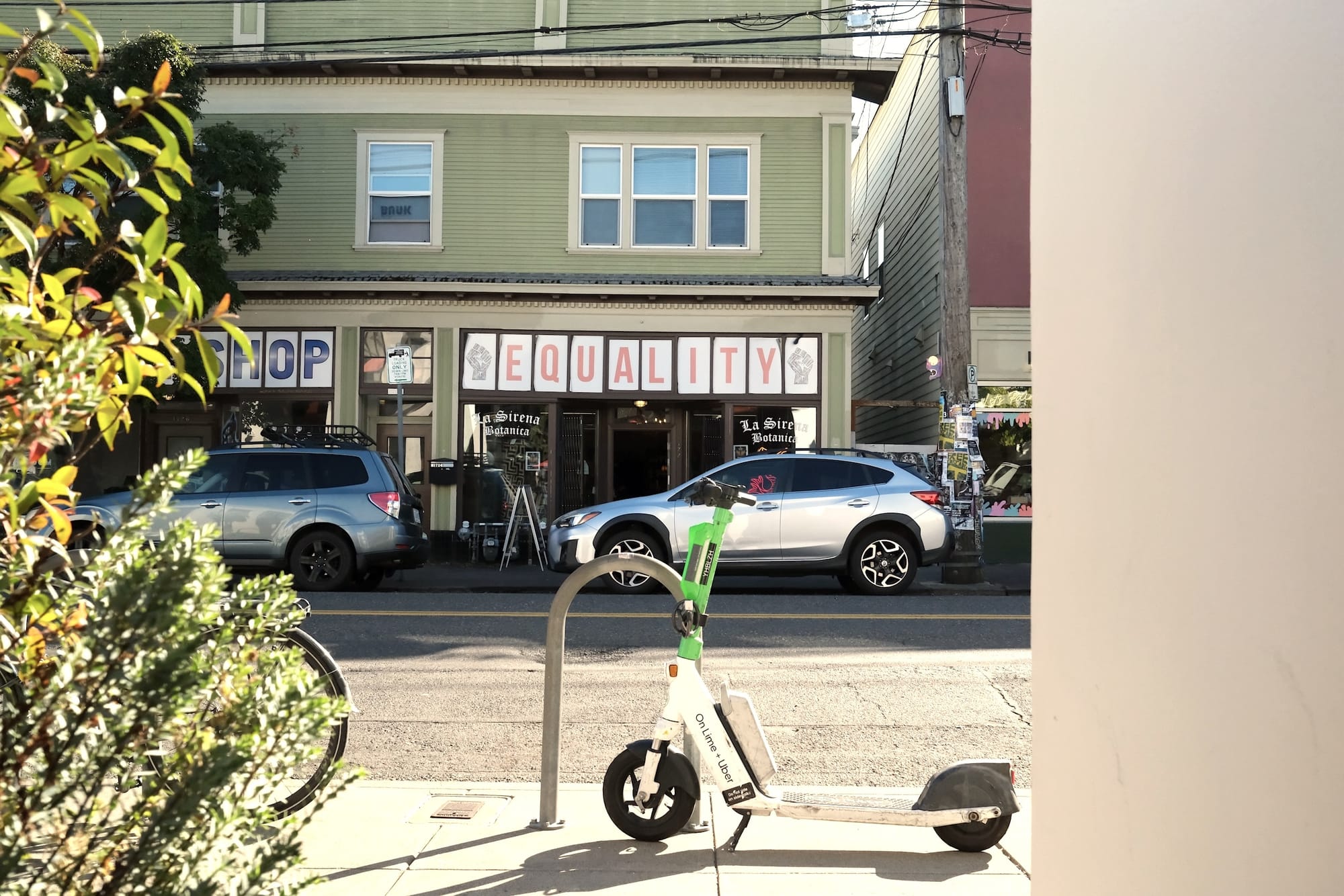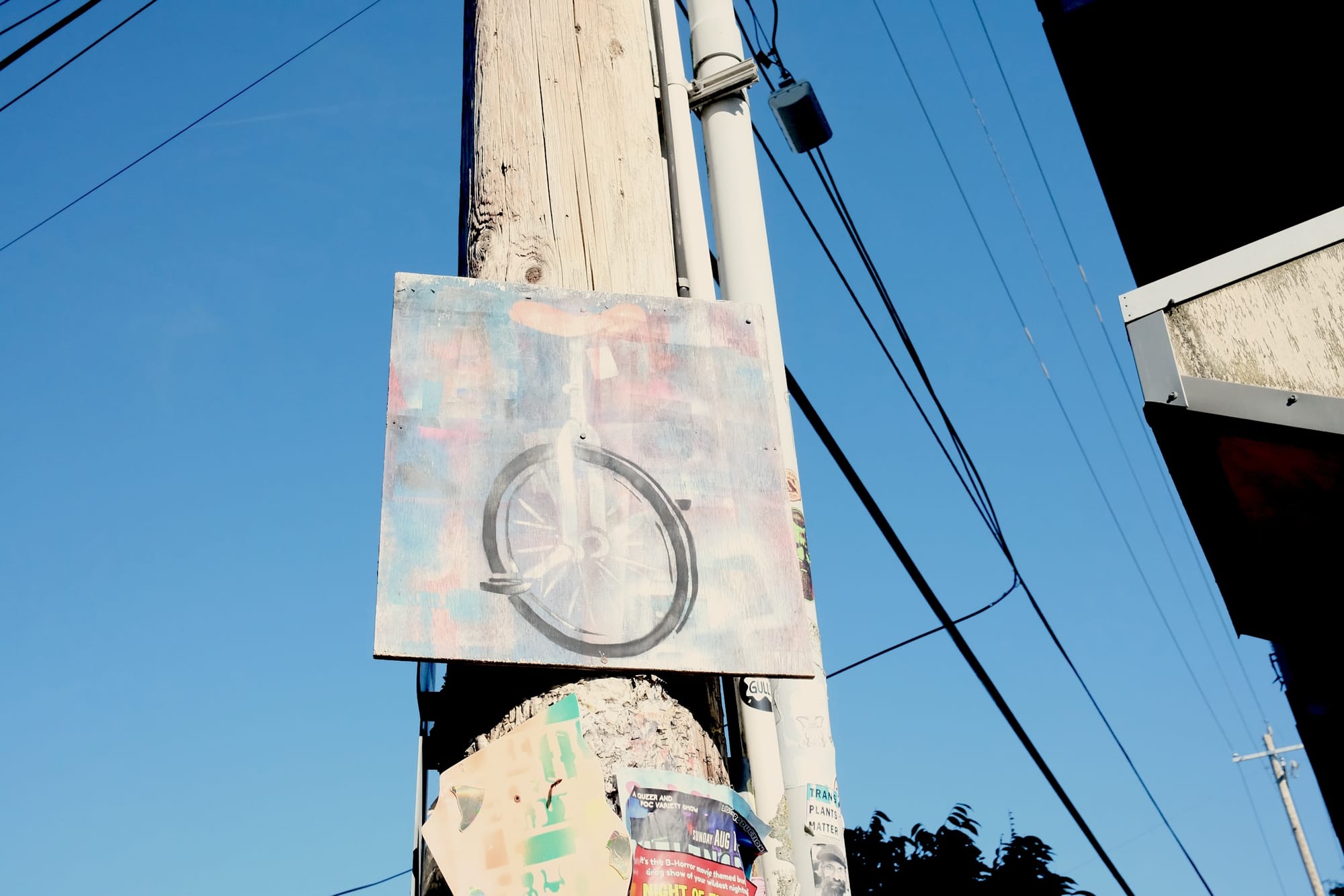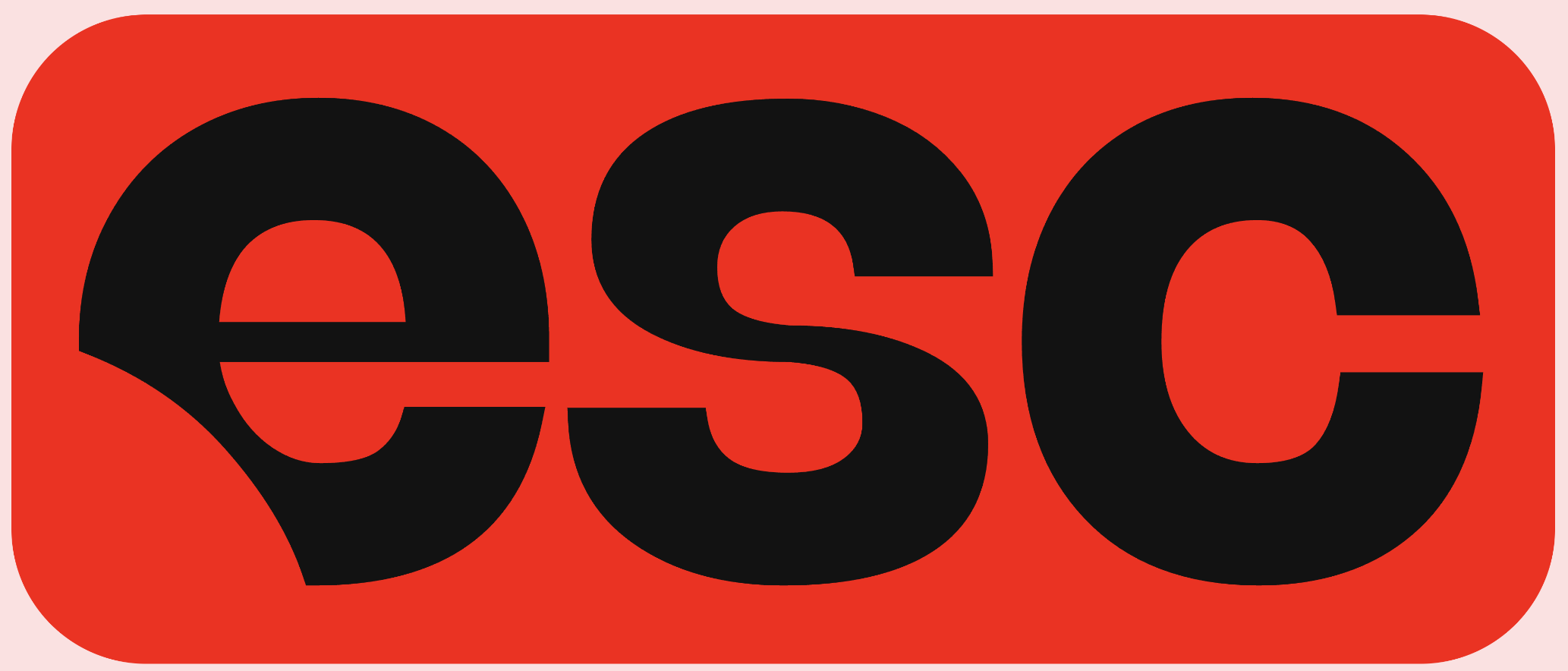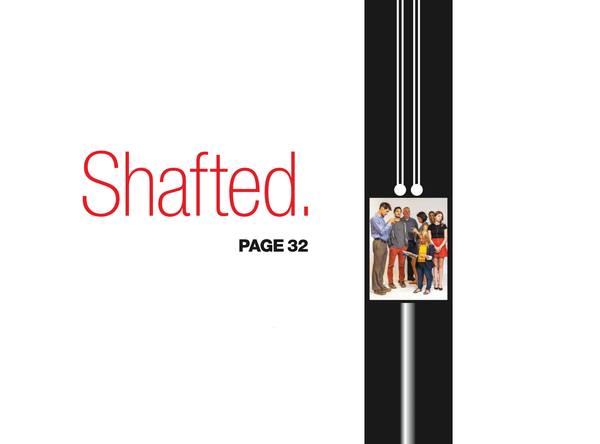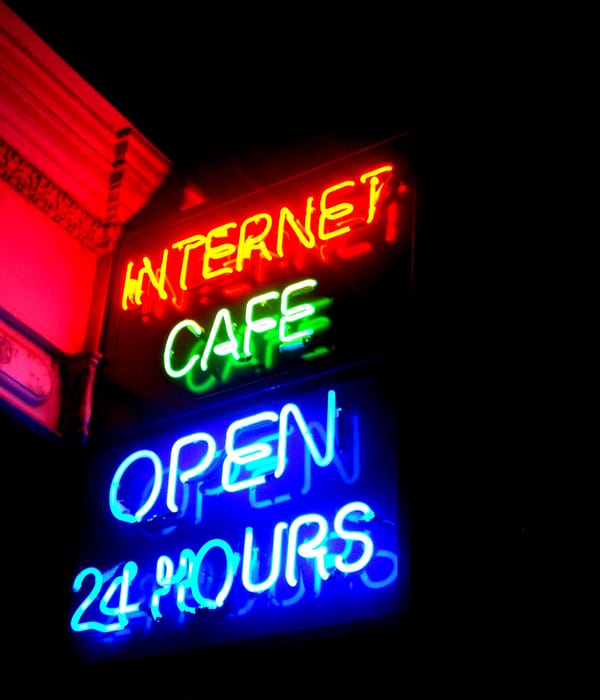What's going on in Portland, Oregon?! I read every poster on utility poles to get answers
The day after our resident street photographer landed in Portland, Oregon, the President of the United States declared it a "war zone," intending to send in troops following absurd occupations in D.C. and Chicago. But a long walk in Northeast revealed the vibe on the street was, well, not that.
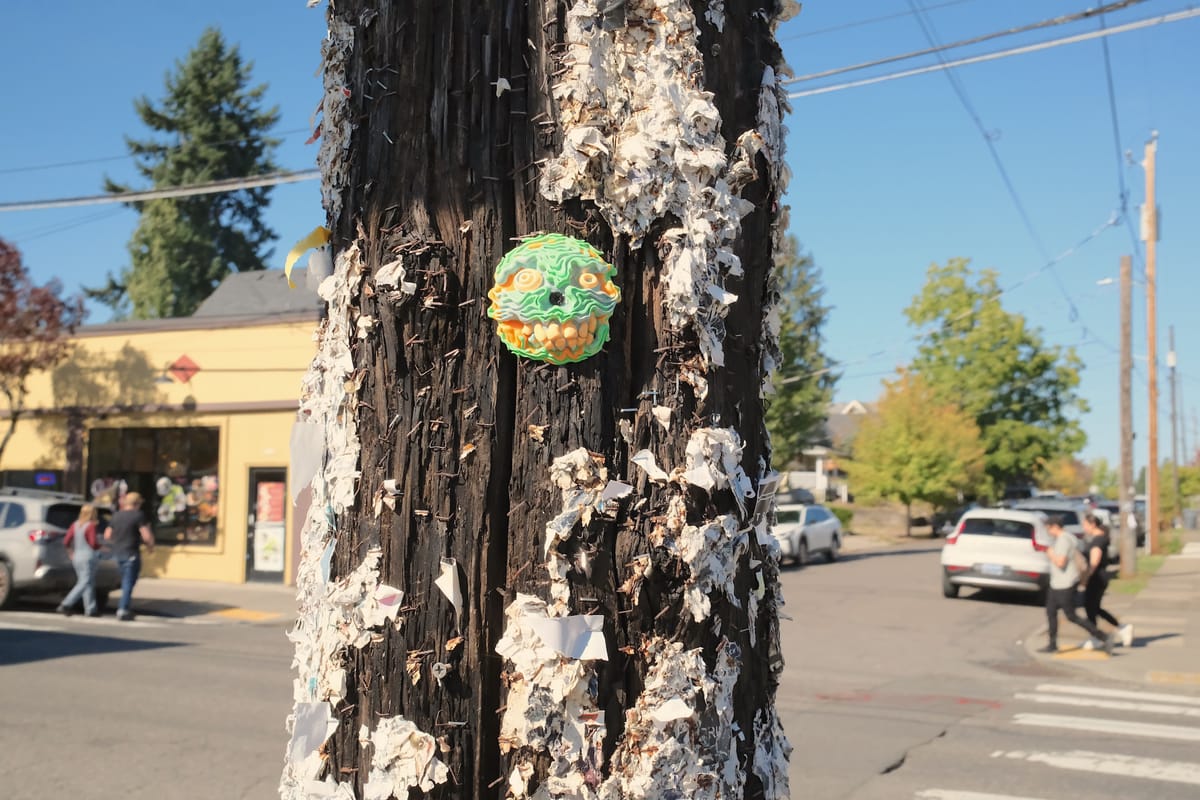
There are problems in Portland, Oregon right now that have nothing to do with Portland, Oregon.
One problem involves too many trigger-happy troops with too much pepper spray. For instance, take federal officers pepper-spraying non-violent protestors, who are merely talking to them — exercising their constitutional rights in the process. So much for free speech, liberty, the First Amendment and all that jazz. Or feds pepper-spraying an 86-year-old woman who had simply strolled down the street to see what the choppers buzzing over her neighborhood were about. A similar problem is tear gas. And troops being mobilized against cities that did not vote for Trump — all for this very-online, authoritarian brain-rot theatre.
The flimsy justification stems from distortions about the state of things in the City of Roses. Recent days have seen the President of the United States repeating obviously false claims that Portland was burning to the ground when protests have been contained to a few blocks around an ICE facility in one of its six quadrants. (Yes, I can hear ye mathy people: six quadrants?!)
On Tuesday, Secretary of Homeland Security Kristi Noem arrived in Portland to, ahem, face the “army of Antifa,” recently labeled a terrorist group by the Trump administration despite being a leaderless and decentralized movement that means anti-fascist. These anti-ICE protests are impromptu disco parties with protestors in blow-up unicorn suits, or a bunch of protestors dancing the “Cha Cha Slide.” As The Independent, a U.K. newspaper, put it in a headline: "Noem praised for ‘staring down’ Antifa. It was a dozen reporters and a guy in a chicken suit." (Cluck cluck.)
Indeed, the problem Portland currently faces is entirely unhinged from any actual problem in the city itself — that's the threat of an invasion by executive order, following similar occupations in Chicago and Washington, D.C. The mobilization of the National Guard against Oregon's will has been halted for now by a judge who deemed it would be “an injury to its sovereignty.” Portland City Attorney Robert Taylor said the federal government is "failing its solemn duty" to uphold the rights of all people – "even those with whom the administration disagrees."
Over the weekend, as this Oregon court battle played out, Illinois Governor J.B. Pritzker raised alarms that sending troops into U.S. cities was the chaotic “pretext” for Donald Trump invoking the Insurrection Act of 1807. It's almost like this is a cynical plot detached from reality ("To frighten middle-class Germans, Nazi propagandists spread rumors of an impending Communist plot to seize power. [...] As a result, the government suspended basic civil rights for all German citizens, including rights such as freedom of expression, press, and assembly.").
Certainly, Portland is a city known for protests. Equally, it's known for the national media twisting the narratives about what's actually going on — which even before the Trump administration has included undue force by officers. For instance, in a 2012 lawsuit, United States v. City of Portland, the Obama administration's Department of Justice alleged a pattern of unconstitutional use of force by the Portland Police Bureau. (Full disclosure: my concern with such brutality motivated me to became an unelected city official in 2016, serving as a Human Rights Commissioner until 2018, when I resigned.)
One of America's whitest major cities does have actual problems — including, yes, white supremacy and surging housing costs. There are more sentimental complaints, too, like all the dive bars that shuttered during lockdowns. However, none of these are problems solved by troops, nor are they problems unique to Portland.
All the while, the general view from the streets? Actually really fucking chill. Crowded farmer's market chill. Wicked-DJ-set-at-the-queer-ish-goth-club chill. Sale-on-chocolates-at-the-dispensary chill.
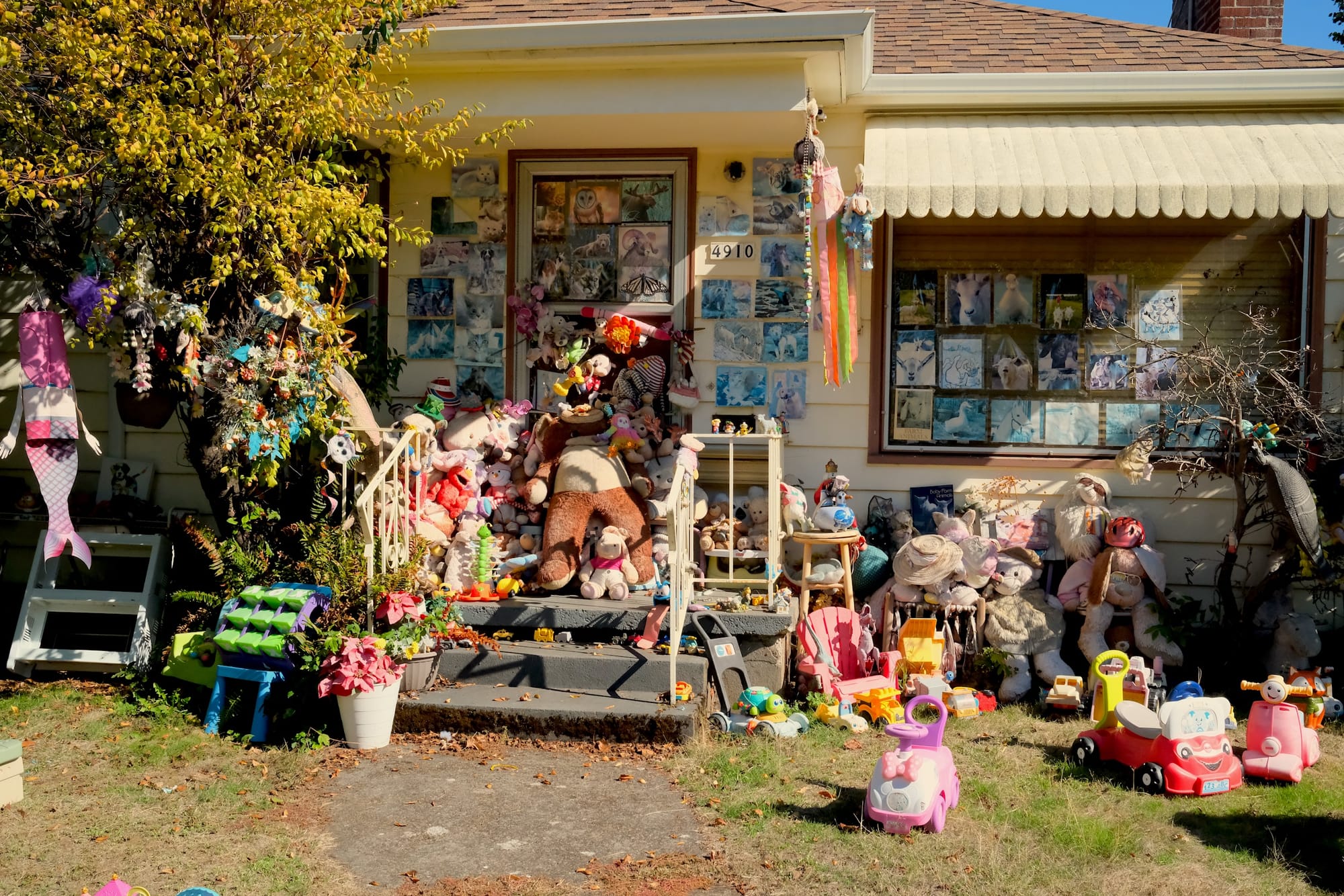
Indeed, the claims about Portland are so detached from reality that they seem absurdly comical to someone who is really there, strolling around one of the city's low-rise neighborhoods and trying to decide which of the many drag shows to attend based on the numerous posters tacked on utility poles.
Yes, that someone was recently me.
👢👢👢
On Friday, September 26, I landed back in Portland, Oregon, where I previously worked as a writer and editor for nearly a decade.
On Saturday, Trump announced his plans to invade the city, which he described as like a "war zone."
"War zone" seemed particularly cynical and ludicrous to me. Indeed, I had a hangover from all the dives, cocktail lounges and breweries I'd visited the evening before with my chosen bisexual sister. My feet were tired from walking around so many low-key streets in the early hours of the morning, where the biggest complaint was trying to find a restaurant open after 10 p.m. (since so many late-night spots such as The Roxy, the West End's 24-hour diner, are no more).
Despite all the bad press — including most recently, The New York Times' report warning of socialism here, which was hilariously roasted by locals on social media — Portland's energy in 2025 feels more akin to its pre-pandemic days, even if the vibe is a bit sleepier, a bit more, huh, there's a Soho House and a Ritz Carlton here now.
It was visible from the moment I landed. I stepped out of arrivals and rolled my bags through the new main terminal at the Portland International Airport, designed by Portland-based firm ZGF Architects — an engineering marvel of undulating mass-timber, waving overhead living trees and neighborhood-inspired retail. It’s packed with regional businesses because, unlike other airports, the concessions leasing is managed by the Port of Portland to funnel traveler revenue to local brands. Street pricing rules mean inflated menus are banned. At PDX, you can buy a feminist postcard and mail it directly from the airport's woman-owned stationery store. Or drink a pint of Oregon beer at a bar pre-security, like it's the year 2000. There's even a map in the main terminal that shows you the forests of origin for all the wood in the ceiling. (Full disclosure: I wrote the copy for the map. I was also once commissioned to write a crowdsourced poem about how much Portlanders hated Concourse A, which the executive director read at a demolition party while DJ Mami Miami was on the decks. These are among other PDX projects, which even included a zine about the airport's wood sourcing and tribal partnerships.)
Take the MAX train downtown, and you sense a fresh pulse, too. I walked by the Portland Art Museum, which is about to unveil a major facelift, as well as the long-anticipated James Beard Public Market, set to open next year. The downtown cafe scene remains hard to beat, too, with Ryan Jie Jiang's beloved Less and More Coffee expanding beyond a repurposed bus shelter into physical retail, close to the light rail crossroads at Pioneer Courthouse Square.
Across the Willammmmette River, the Central Eastside has opened a multi-level food cart pod, Wonderlove, with a clubby vibe and DJs spinning U.K. garage and other sounds until 2 a.m. on weekends. The newer wave of upscale restaurants are packed, too. Good luck securing a reservation at Kann, the Haitian sensation opened by chef Gregory Gourdet (full disclosure: my former neighbor).
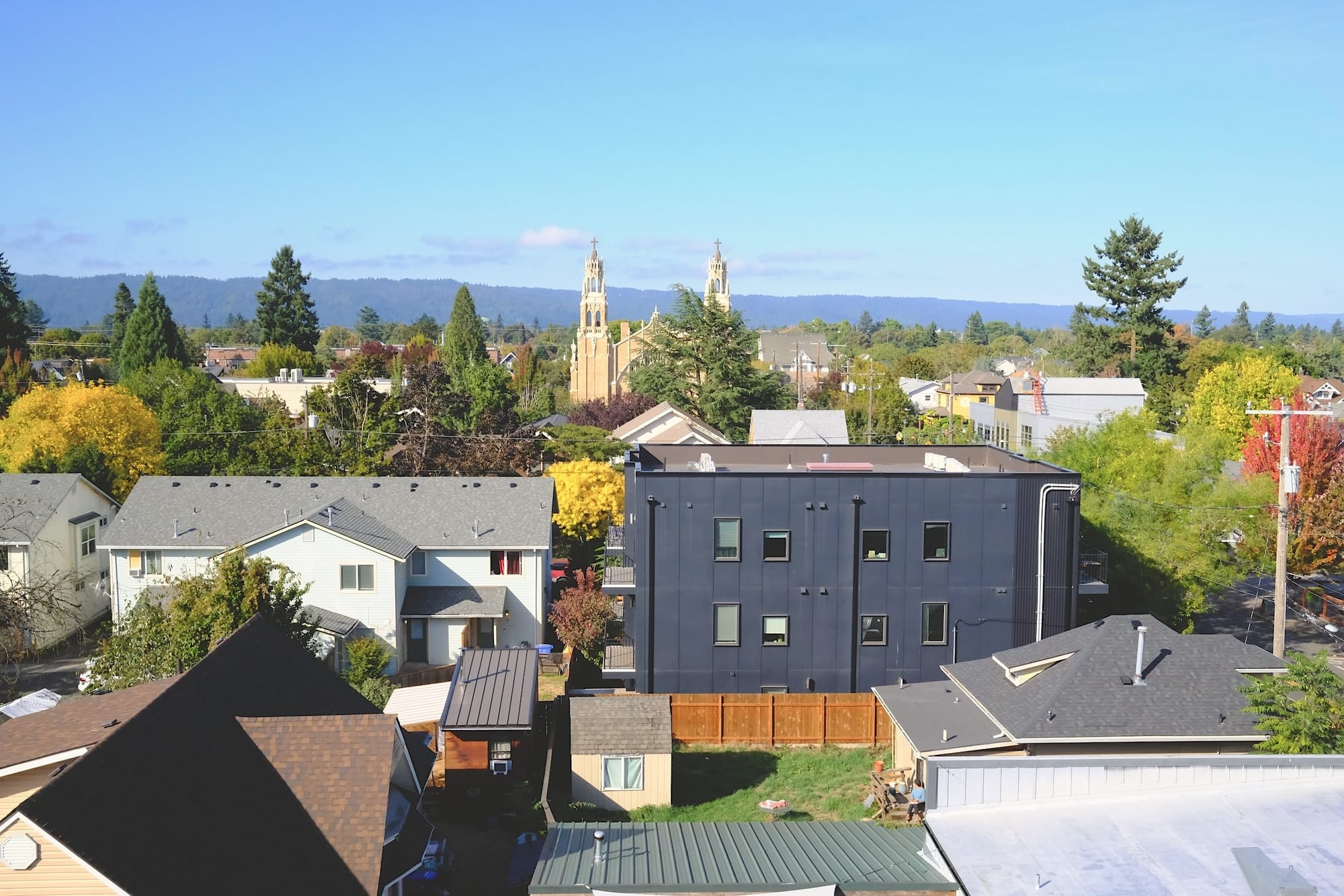
And despite the cost of living, the city's creative events and venues draw crowds. Last Thursday, I met up with a journalist friend for a packed gallery opening in the Alberta Arts District, at the new CASCADA Thermal Springs + Hotel. Hundreds of people sipped wine and listened to the artists discuss their work, before the lobby of the new destination turned into a boozy after-party.
As an independent hotel, CASCADA stands in contrast to some of the other "new Portland" lodgings like the Ritz. Rather, this is a locally developed mass-timber landmark, which has achieved Platinum LEED Certification; centered sustainability and low-carbon materials in the design in big and small ways (e.g., no animal skins in the property; cork leather everywhere; natural wood finishes to minimize paints and "new building"-smelling chemicals); and collaborated with beloved local businesses such as sneakerhead roastery Deadstock Coffee, which co-opened its cool cafe. Oh and yes, yet another full disclosure: I got a tour of CASCADA. That's how I know all those facts about cork leather, LEED certification and mass-timber.
As the art opening demonstrated, many Portlanders will show up for the arts, for a little free wine, and a social time.
That was one signal that, far from a war zone, Portland's creative scene continues to draw local crowds.
Another such signal is all the posters on utility poles, a longtime symbol for Portland's contrarian and grassroots spirit.
👢👢👢
"What's going on in Portland, Oregon?!" a friend back in London texted me while I was away.
Well, speaking of utility poles and art openings, I knew the most literal way to answer that question was to get out on a walk with a camera and snap all the posters along the route. Leaving CASCADA, I spent a couple hours walking east and then west on Northeast Alberta Street, a historically Black neighborhood that's experienced extensive gentrification and displacement of longtime residents in recent decades.
But that won't stop folks from postering all the poles along the streets with advertisements for no kings protests, tarot art shows and, yes, lots of drag. Together, these images — captured with my little Fujifilm X100VI — are a kind of time capsule for a city that's as frustrating as it is a fucking good time.
After all, that's the reason for all these full disclosures — as much as I can roast the city for its quirks and cringe, for its many documented problems, it's also a city I have a complicated relationship with; it's the city where I really came into my own as a queer person and found chosen family; and it remains a city I love. (There's a reason that the first two Power Lunches, featuring Blaxicocina founder Tiara Darnell and photographer Celeste Noche, have a Portland connection: it's a city that's left an outsize impact on many creative folks who have, at some point, called it home.)
War zone? Leave that to the feds.
As for me? I'll be waving dollars for the queens (chief of all, our pal, Poison Waters).
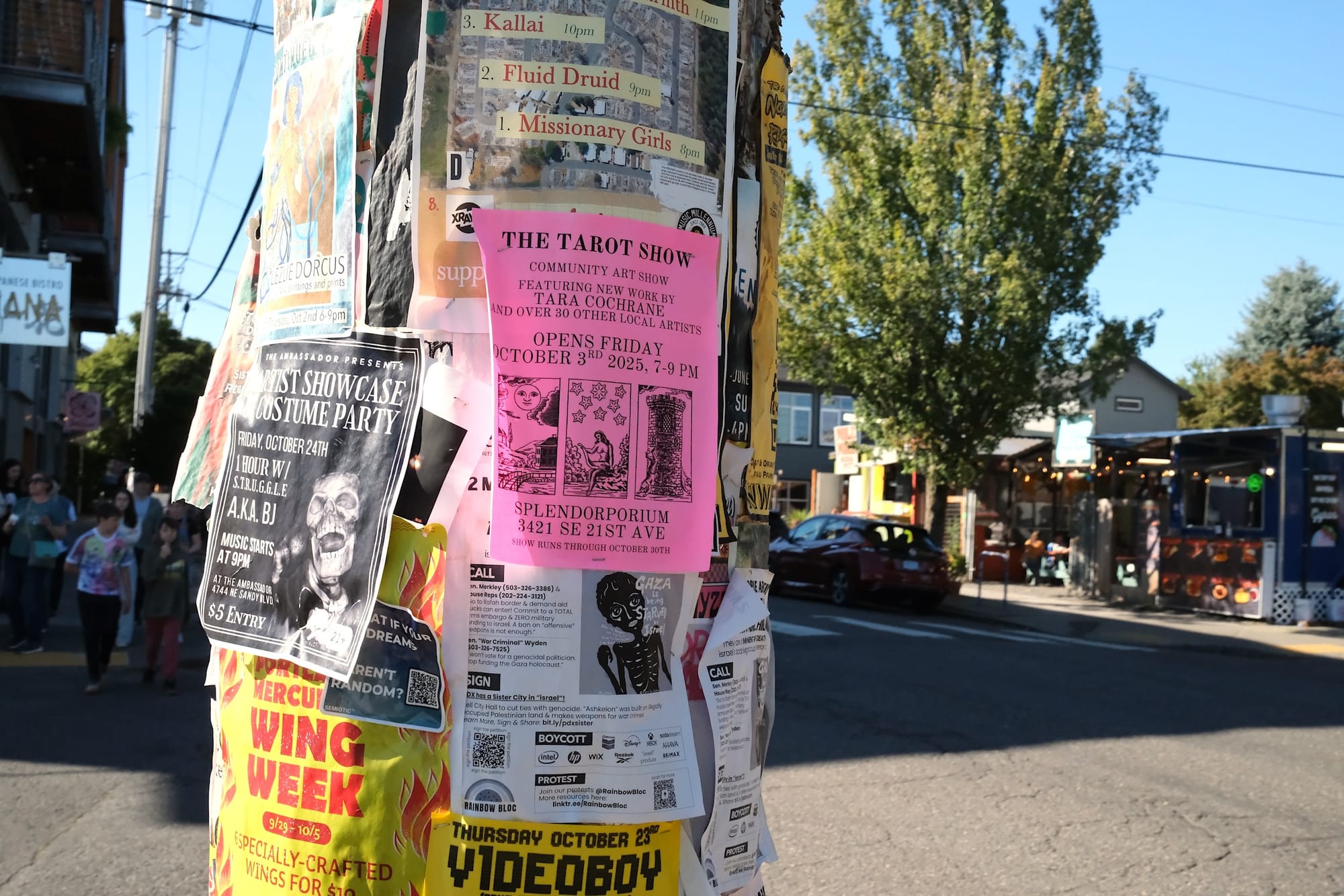
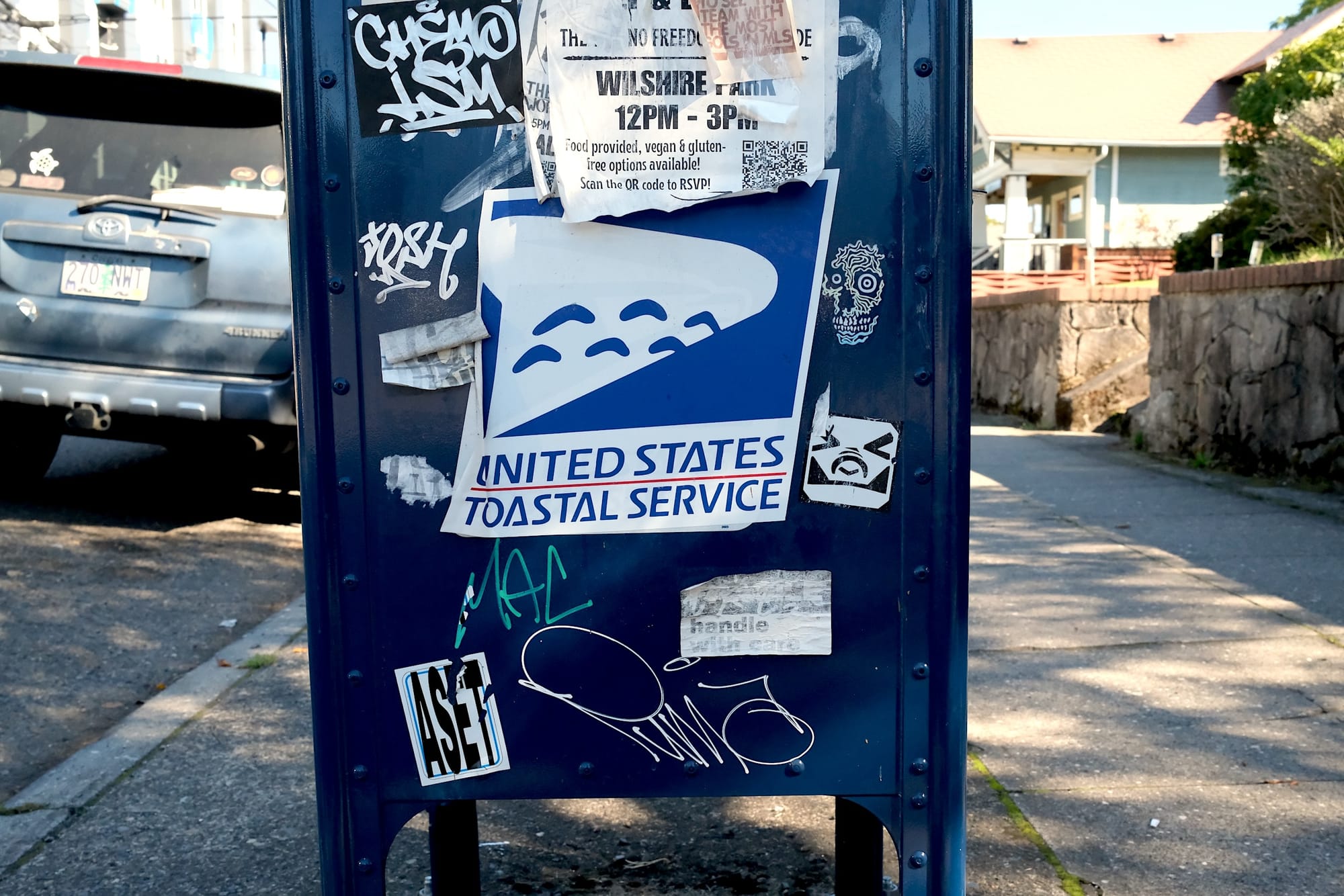
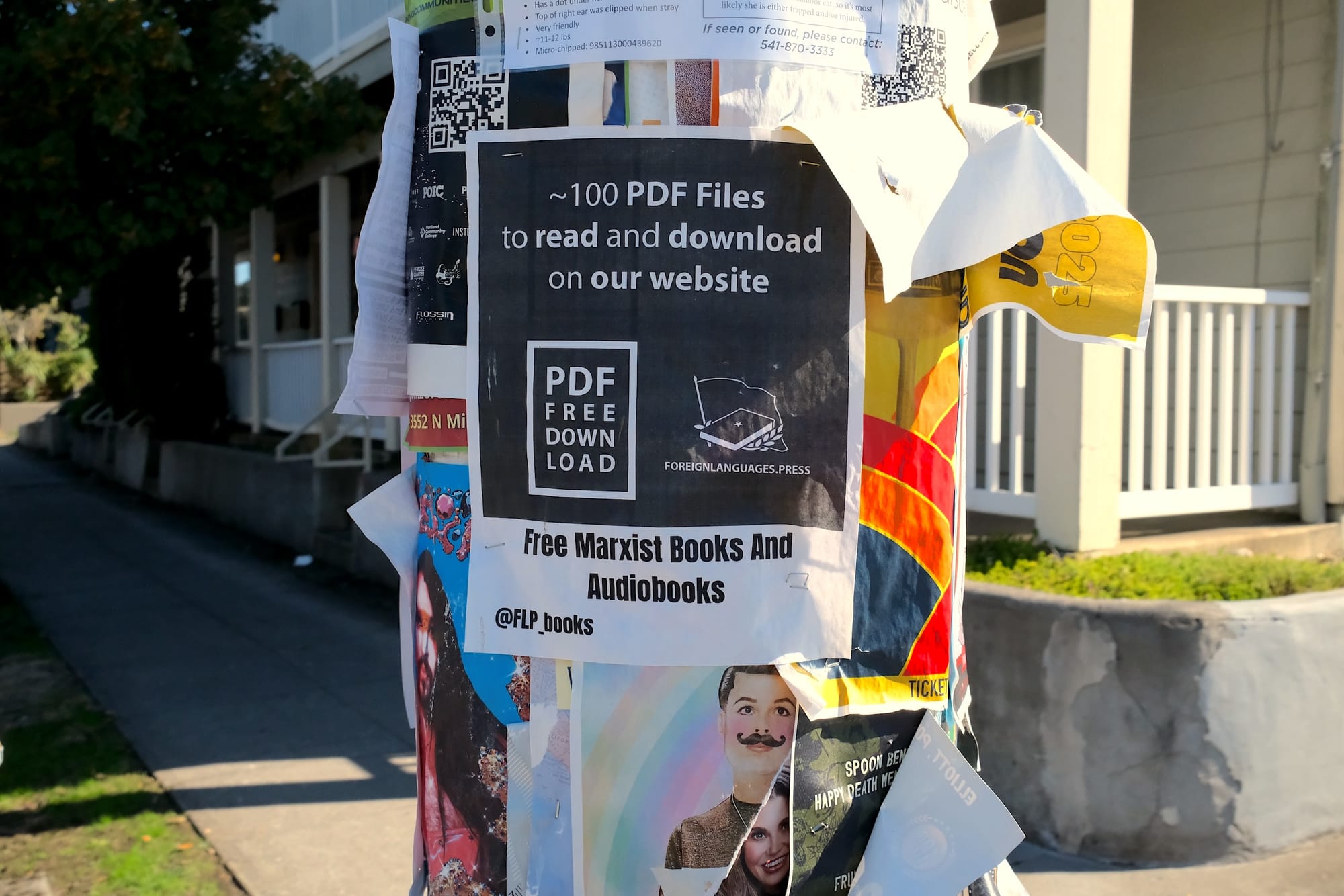
First, an excellent pun. Second, more than 100 PDFs to download.
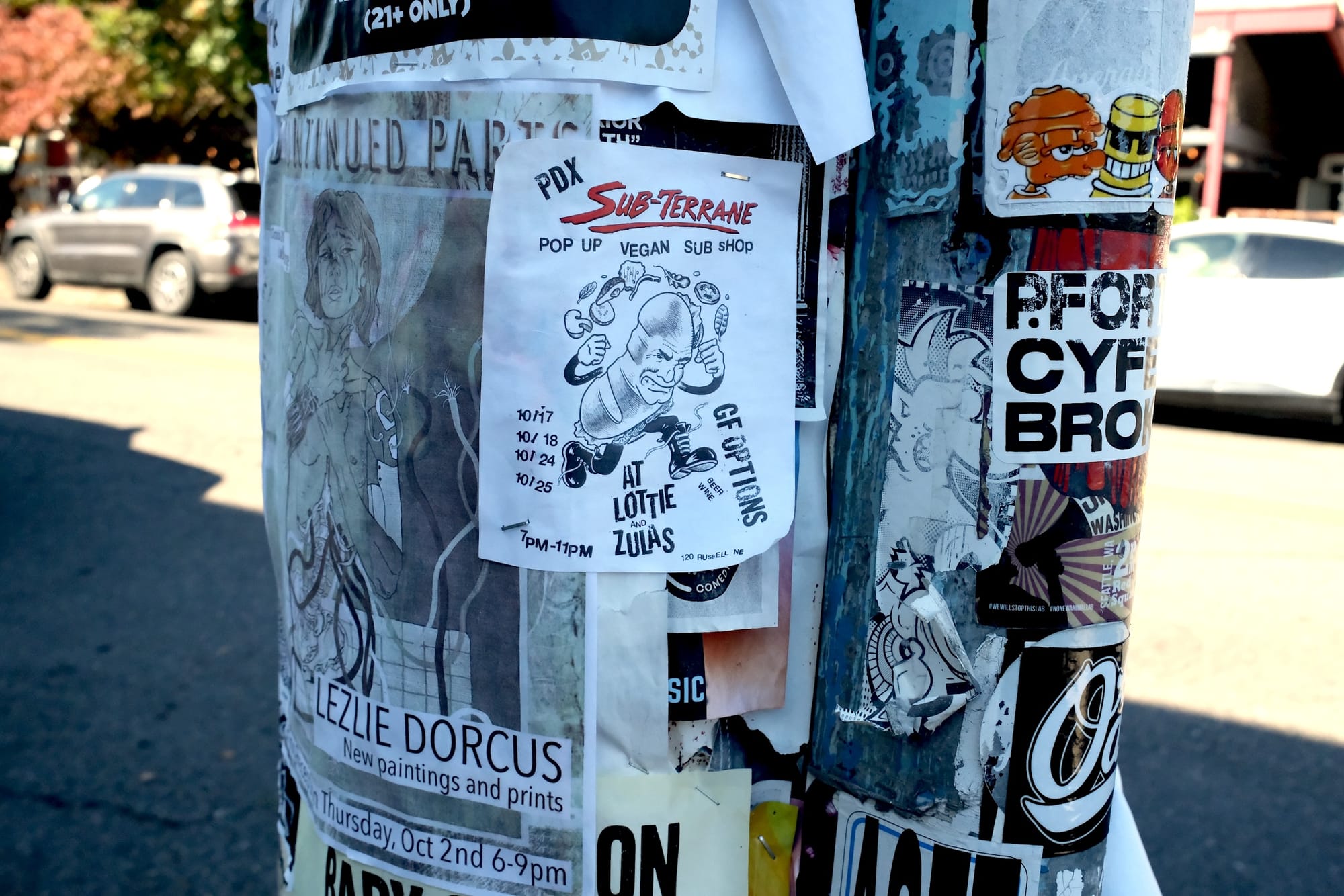
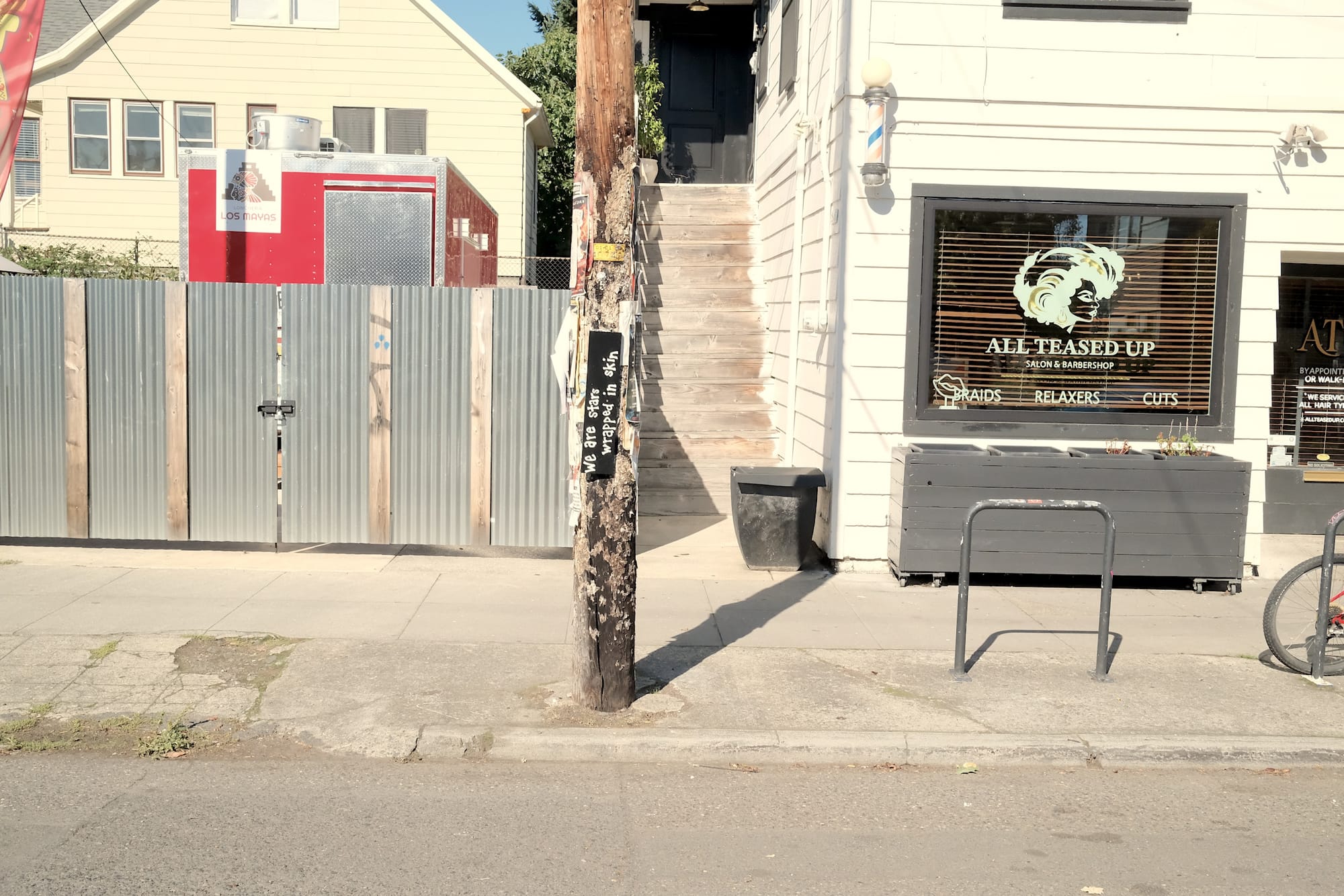
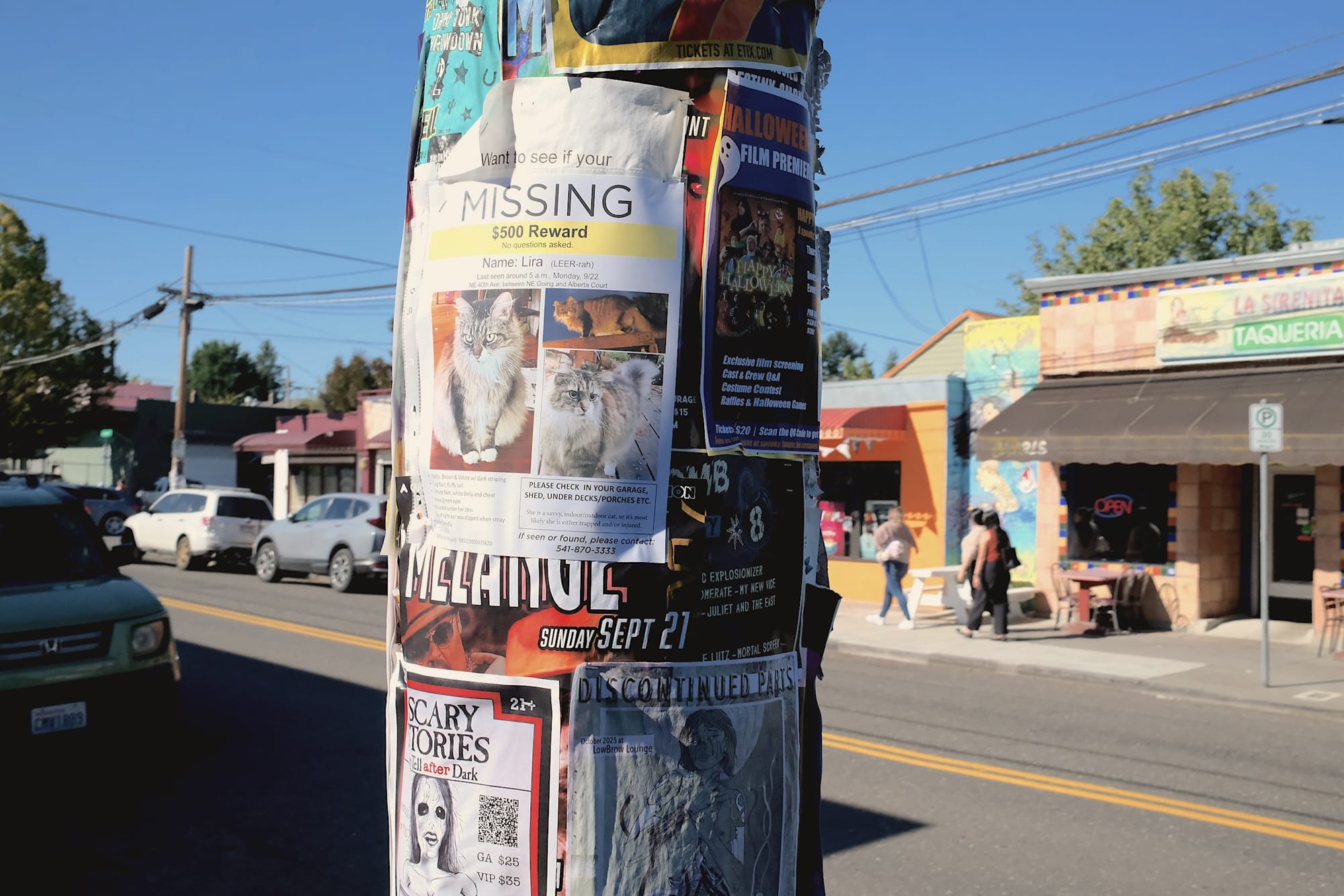
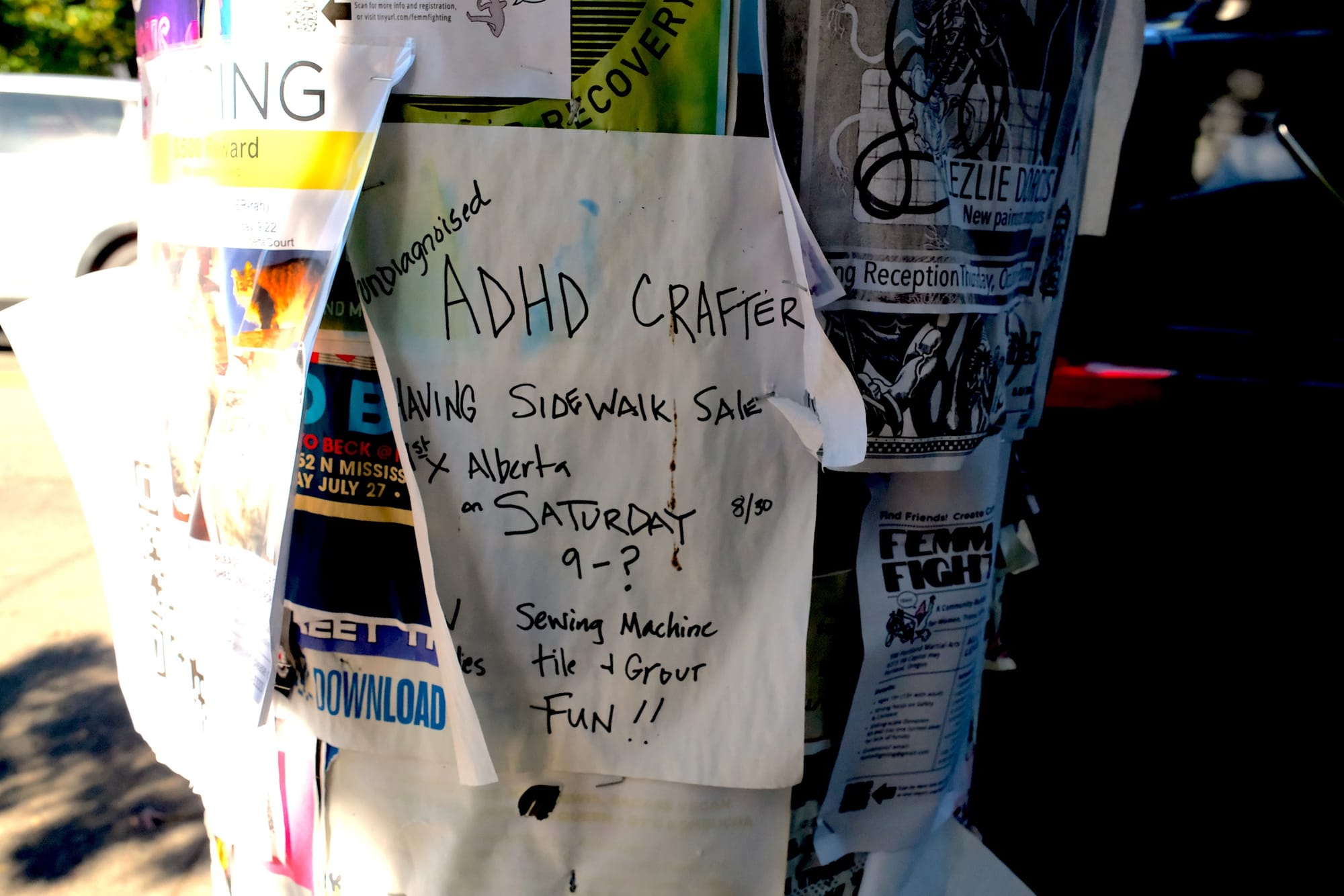
First, somebody find this cat. Second, wow, huh, OK.
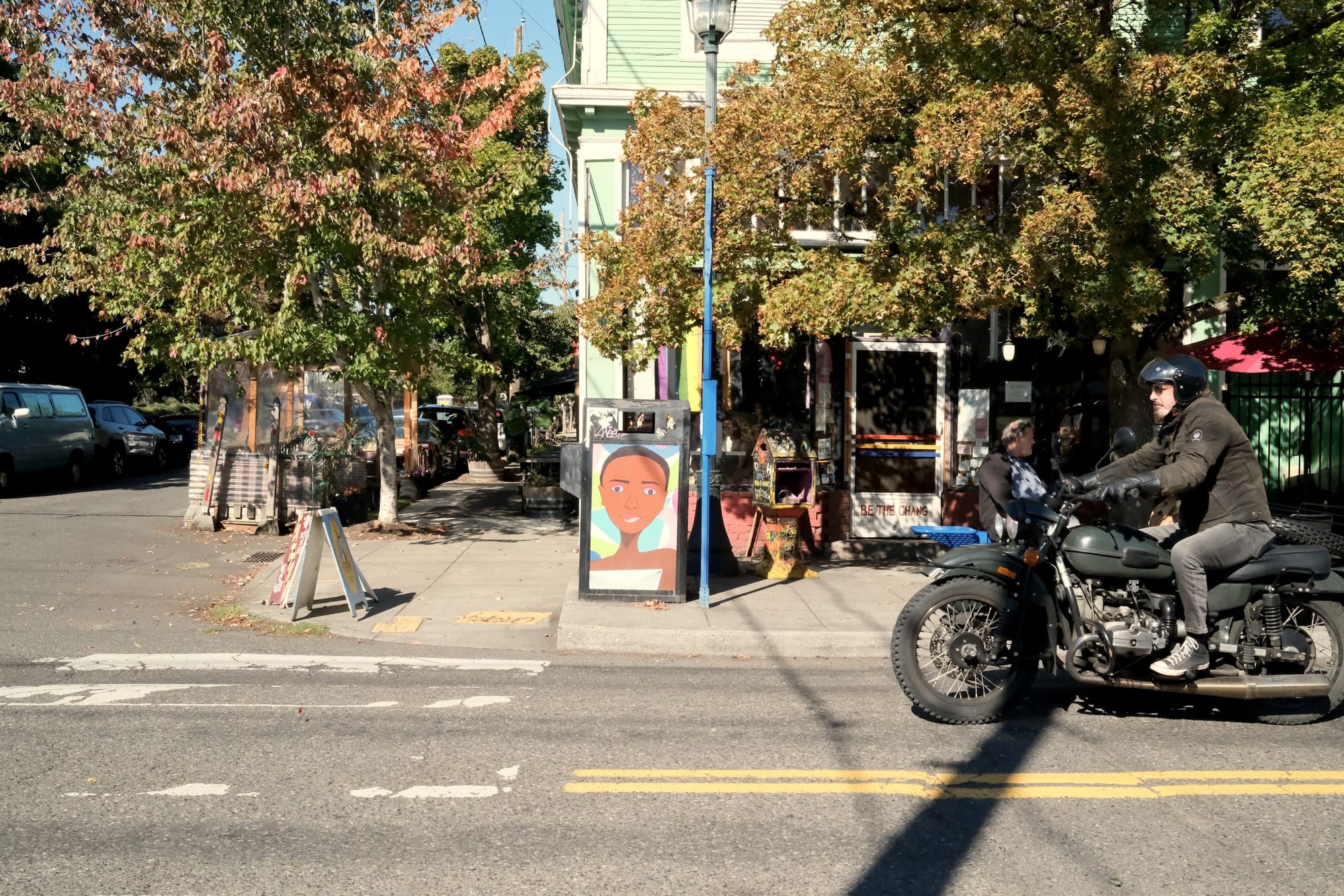
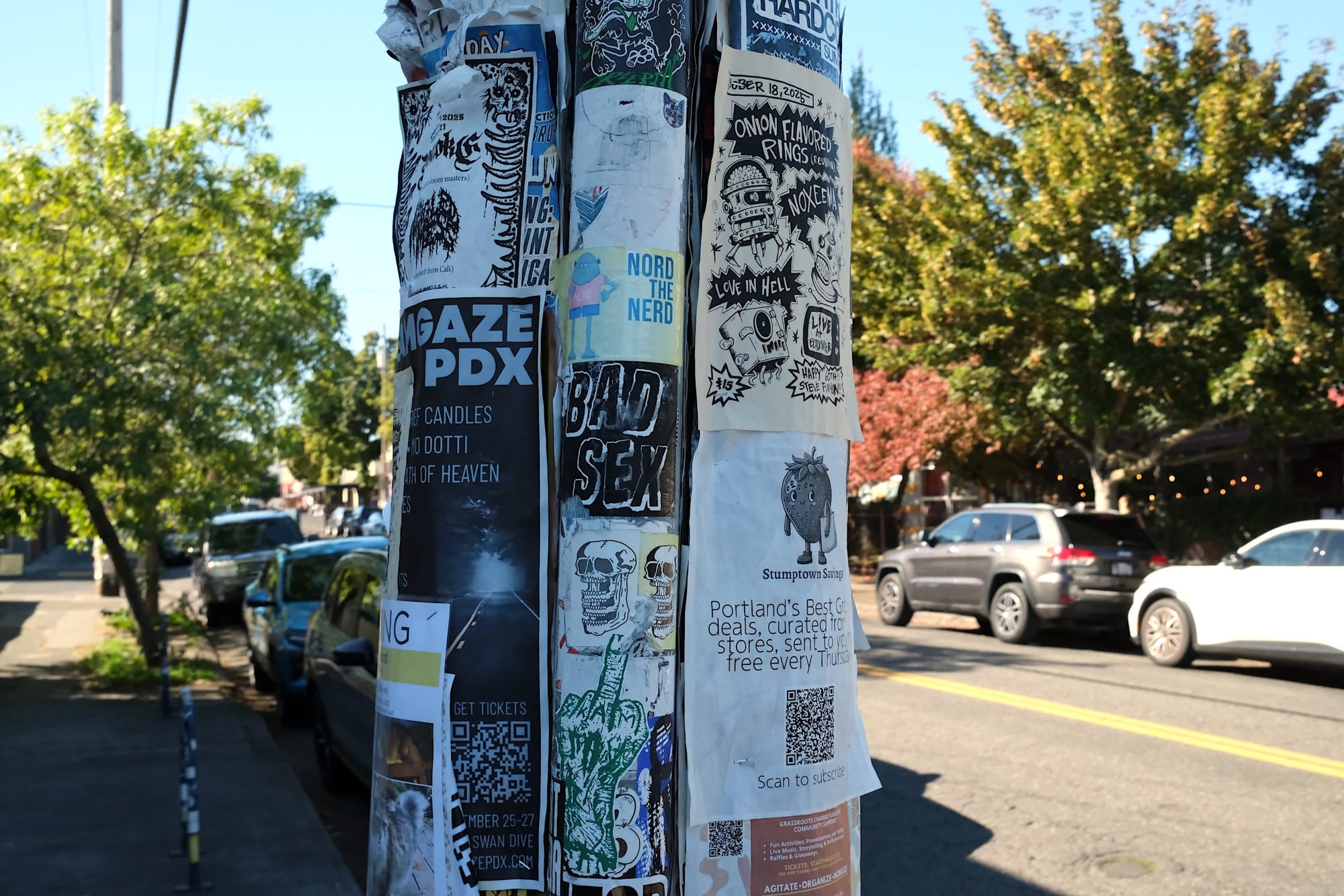
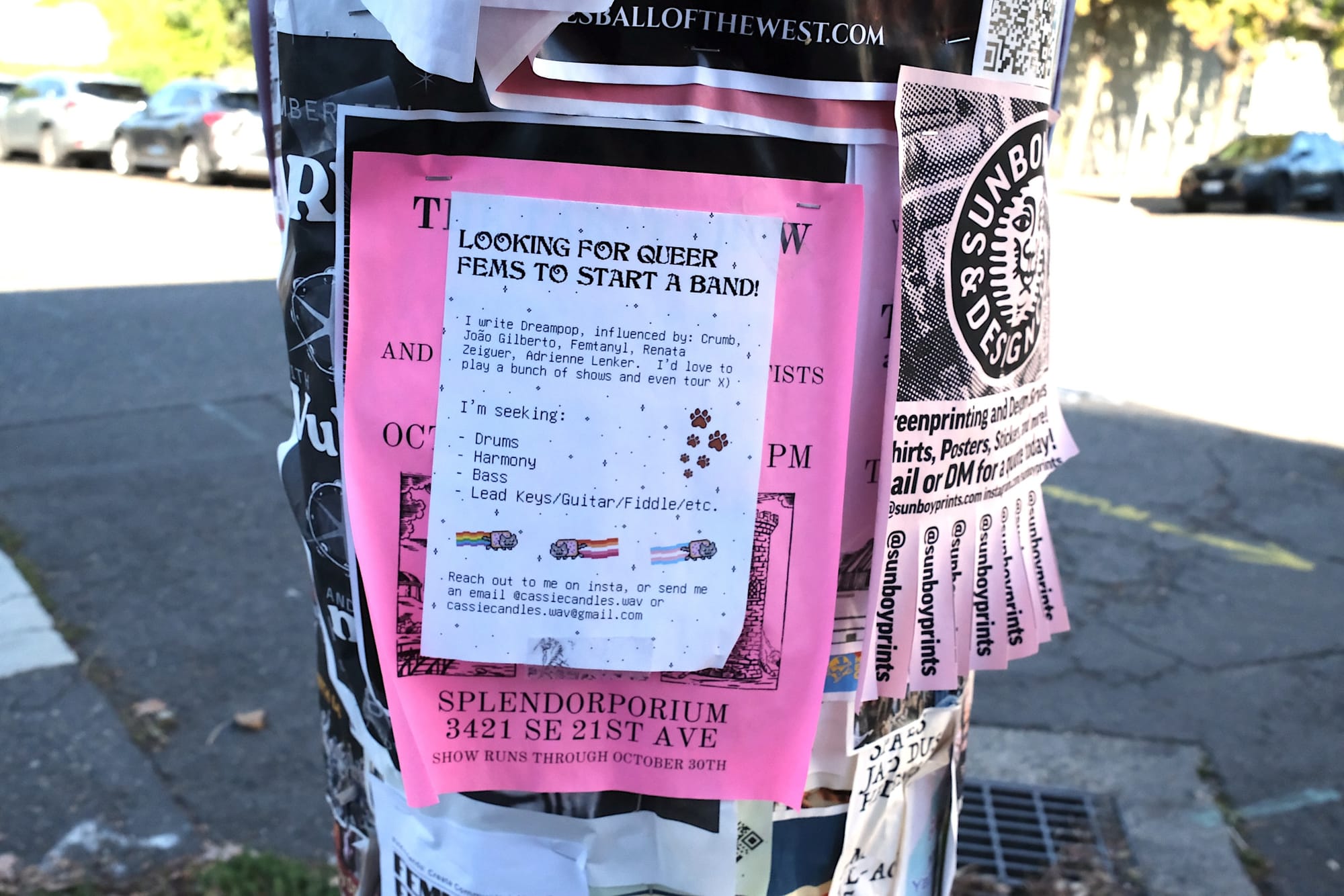
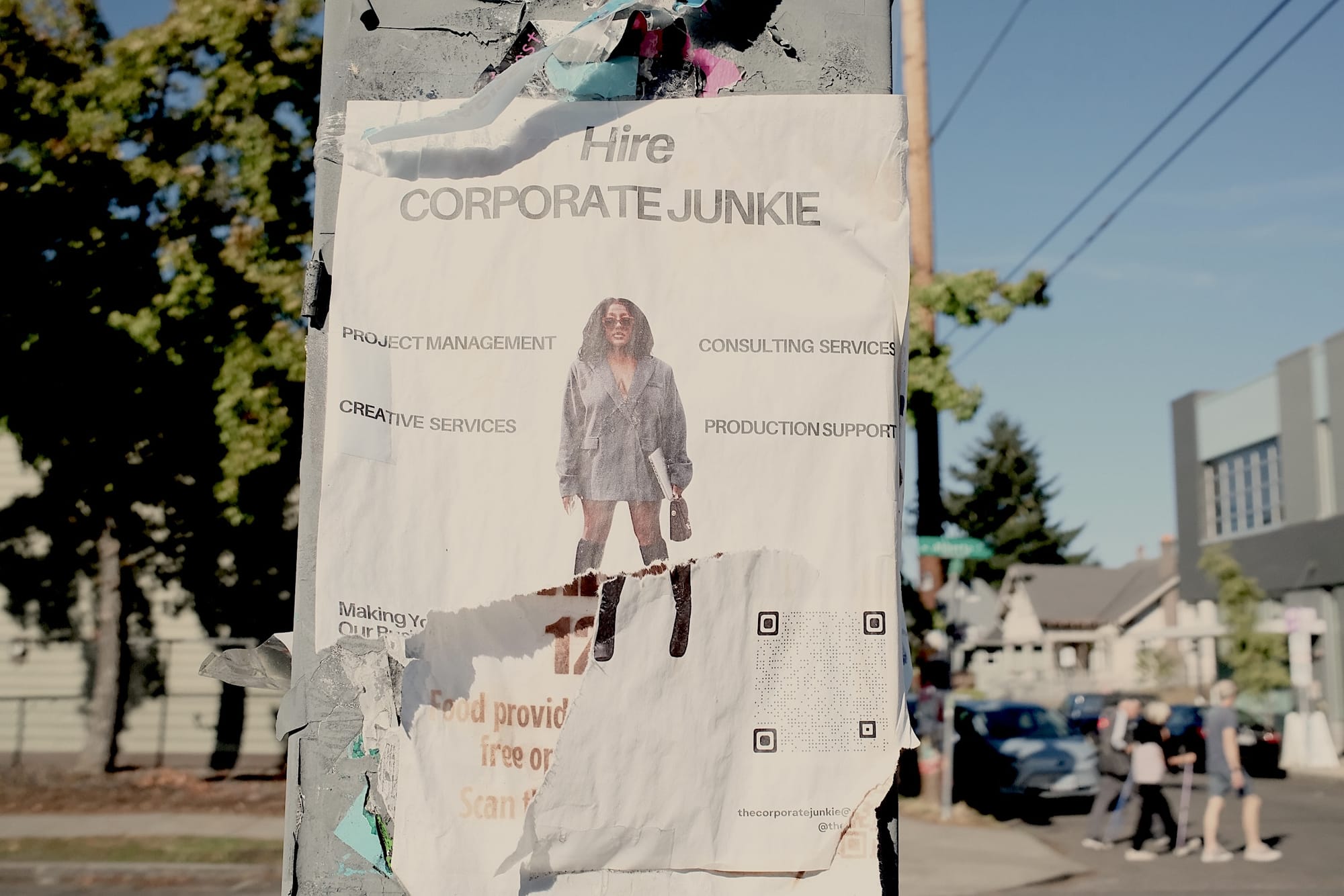
First, my sincere wish is that we can get this band together. Second, please hire her!
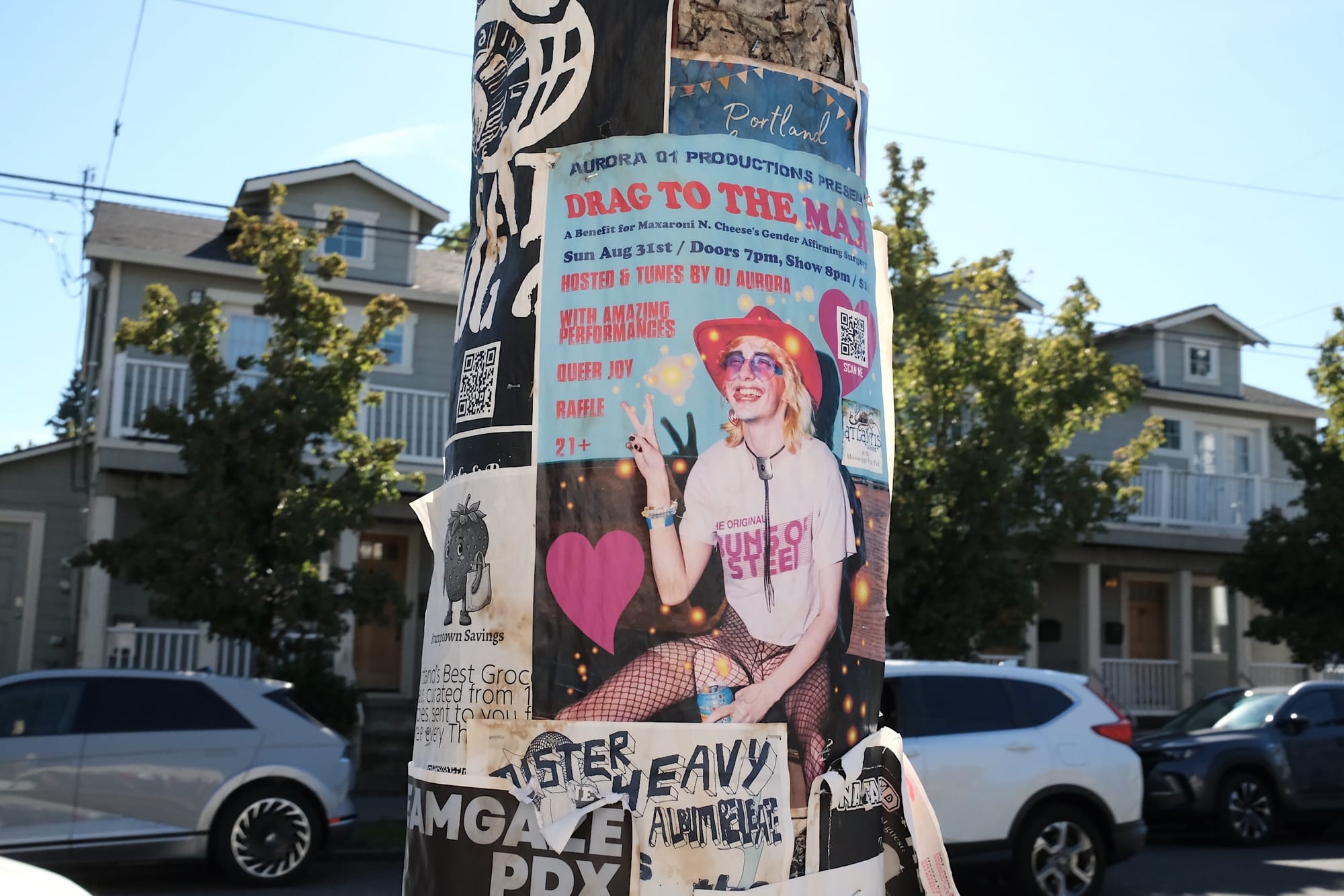
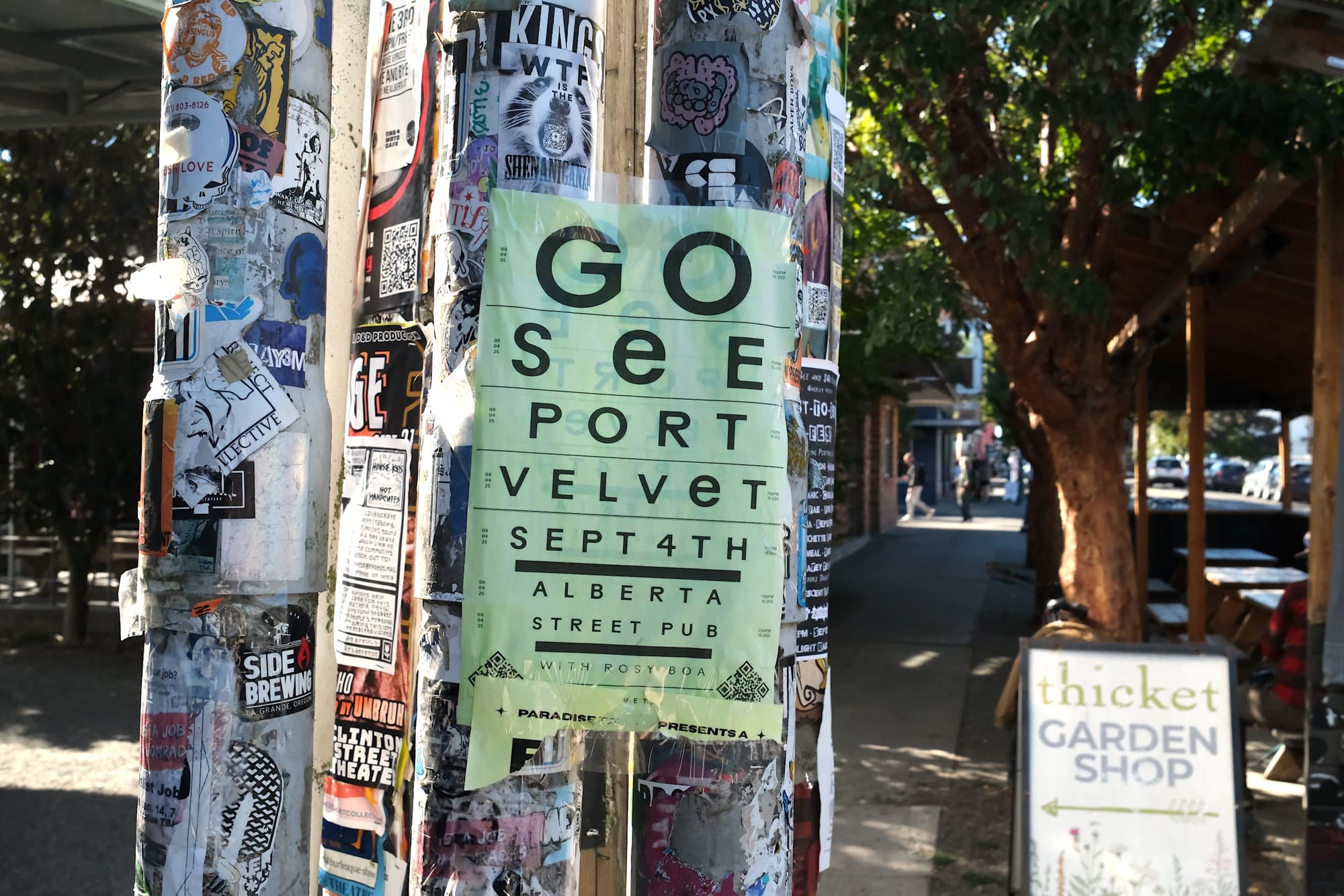
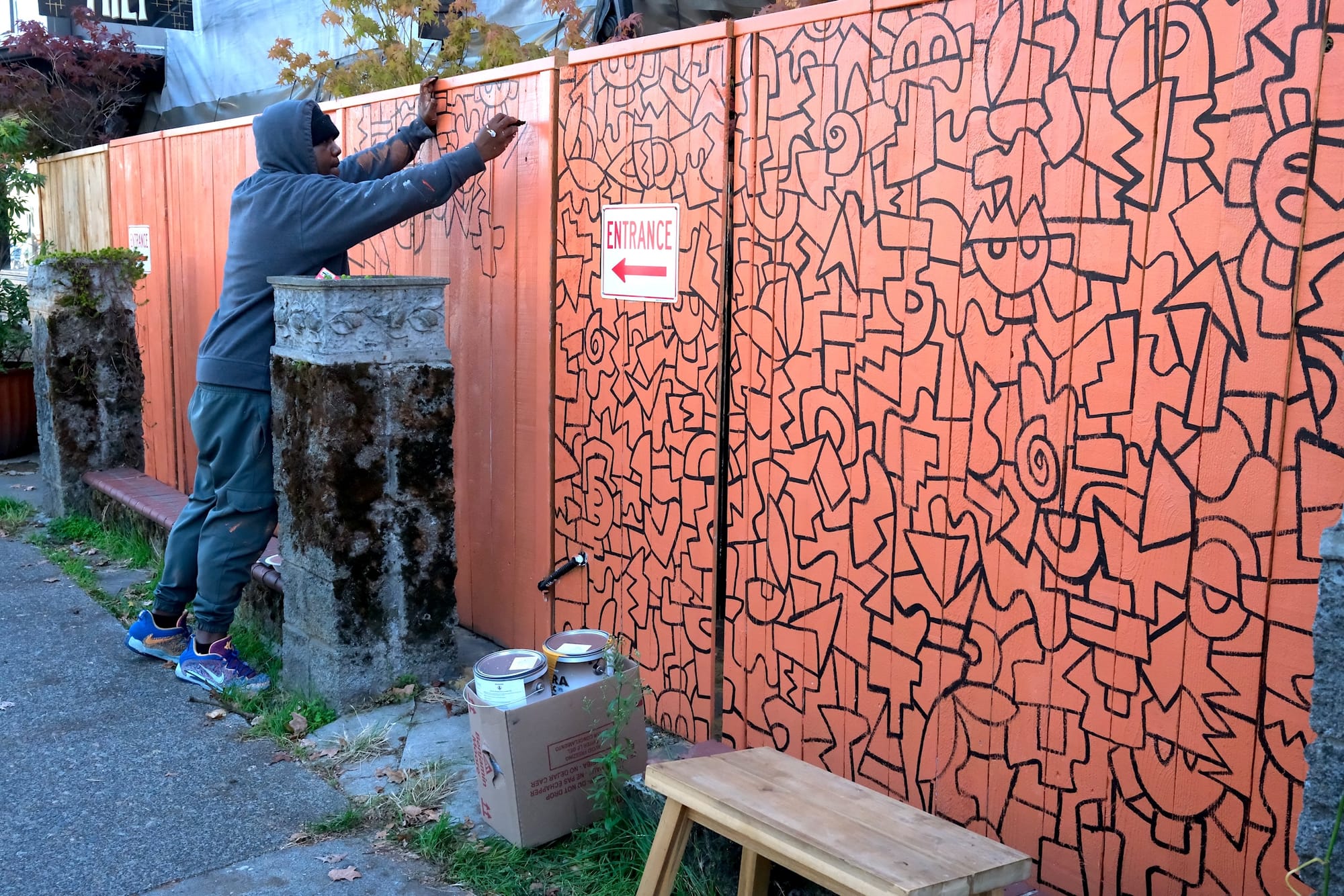
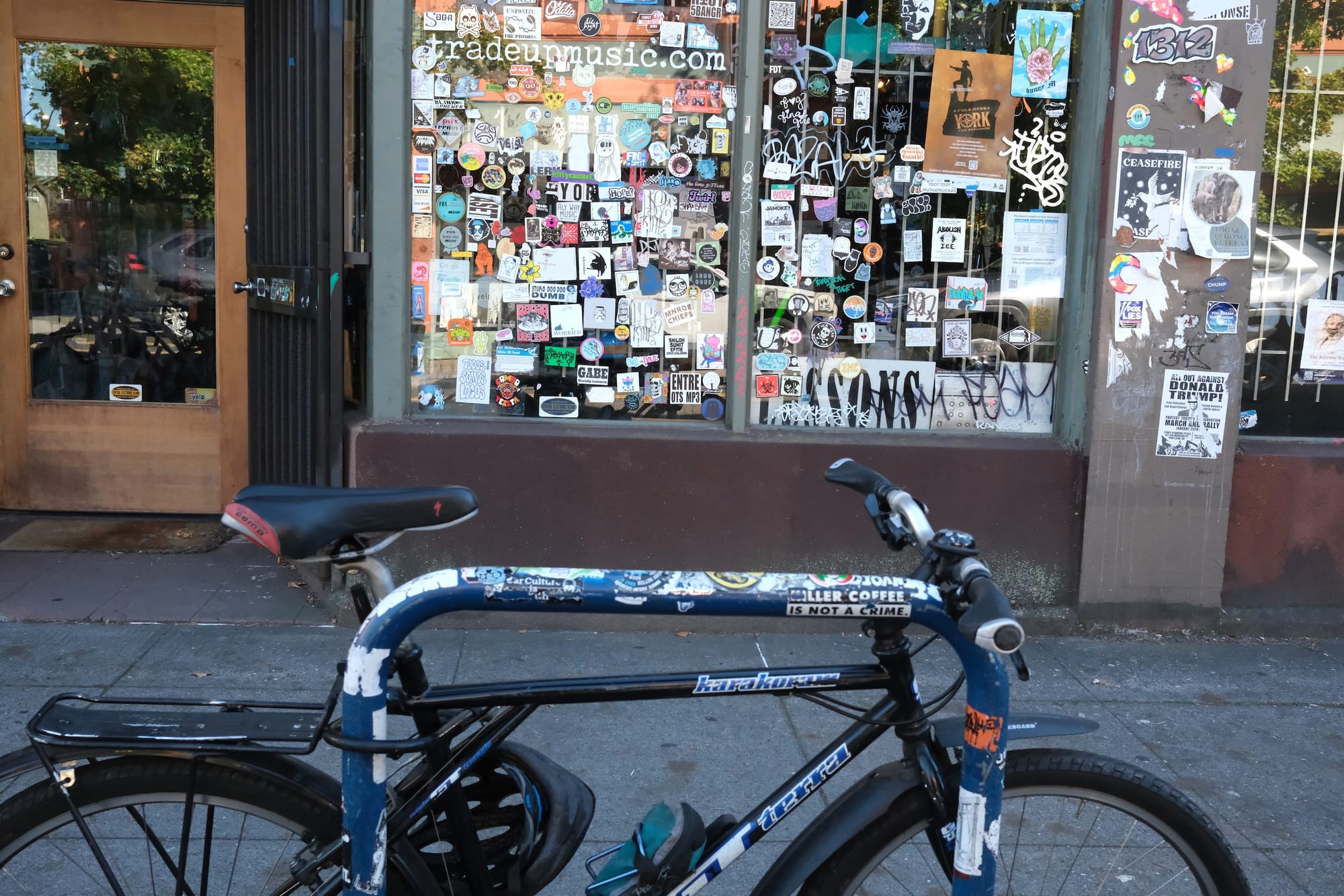
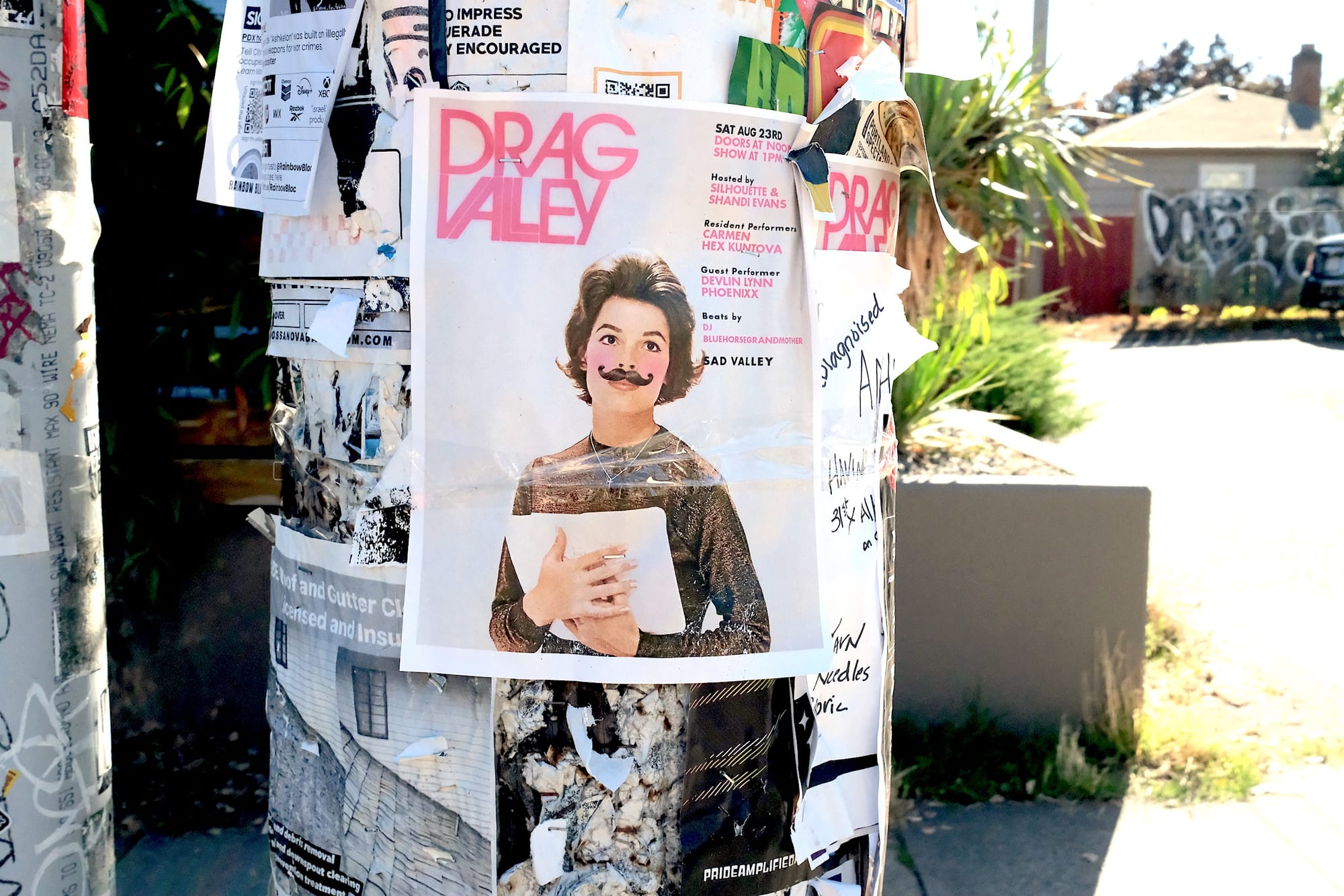
First, a lot of stickers. Second, a drag valley is the best kind of valley.
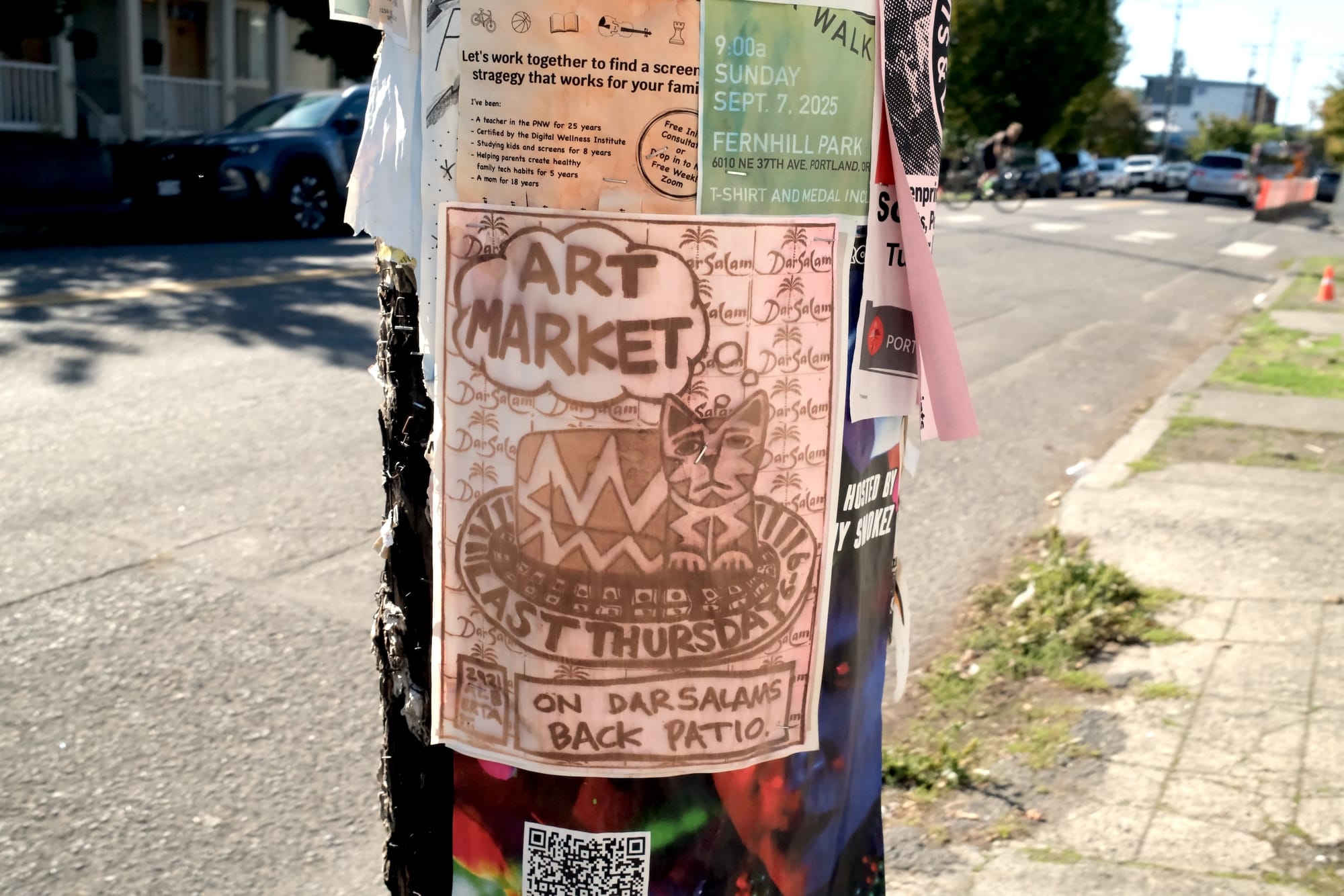
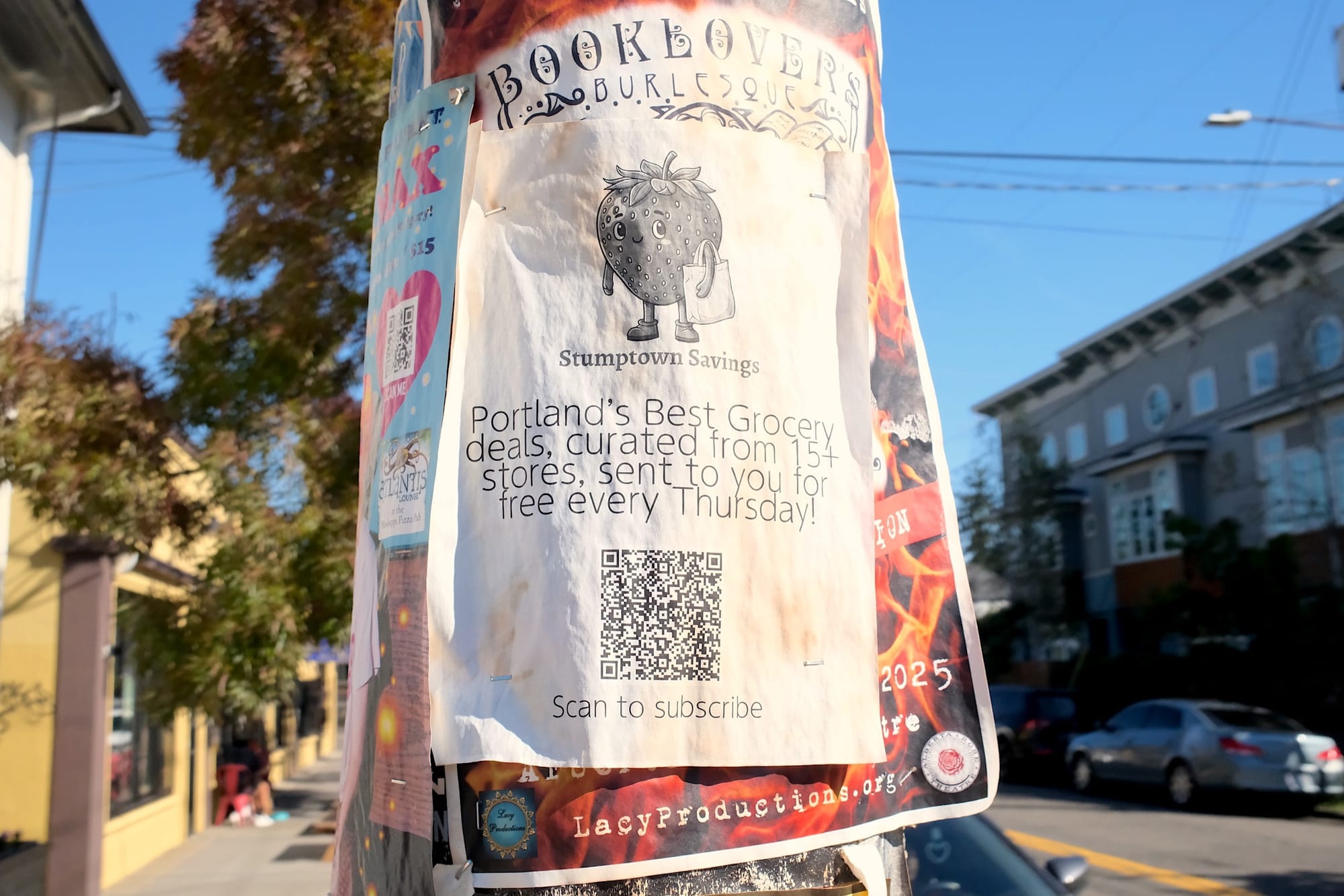
First, art market. Second, a poster for the beloved local newsletter, Stumptown Savings.
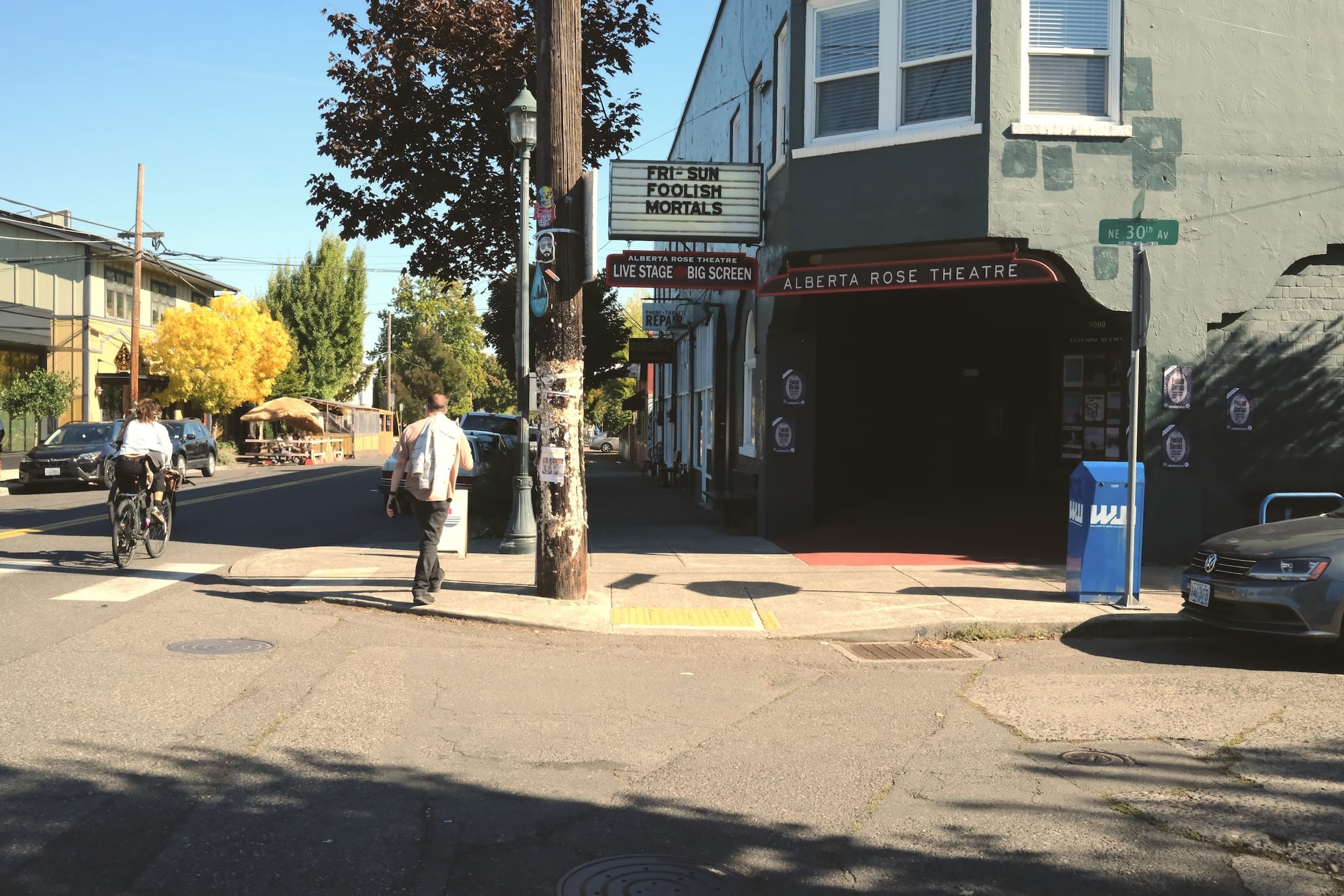
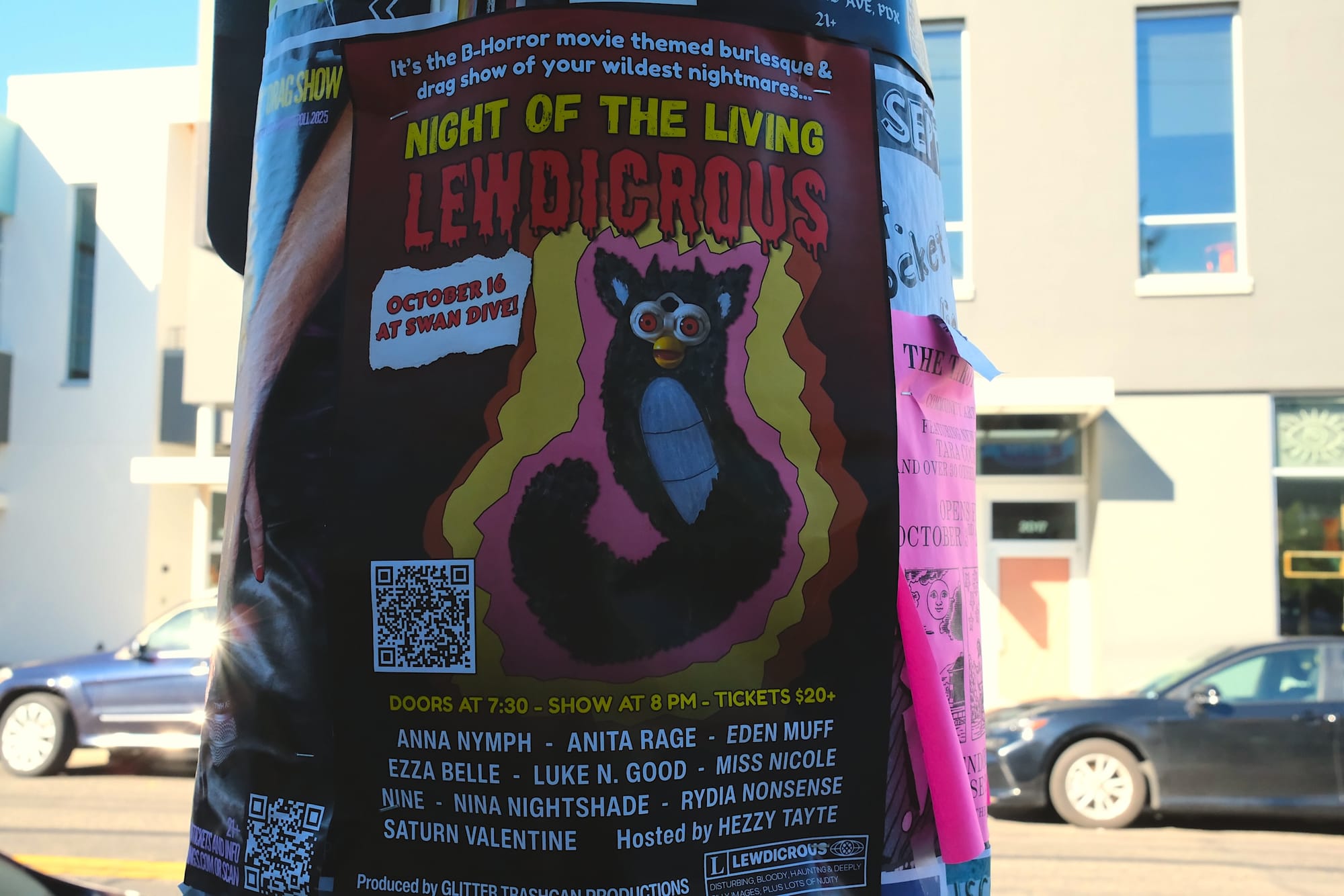
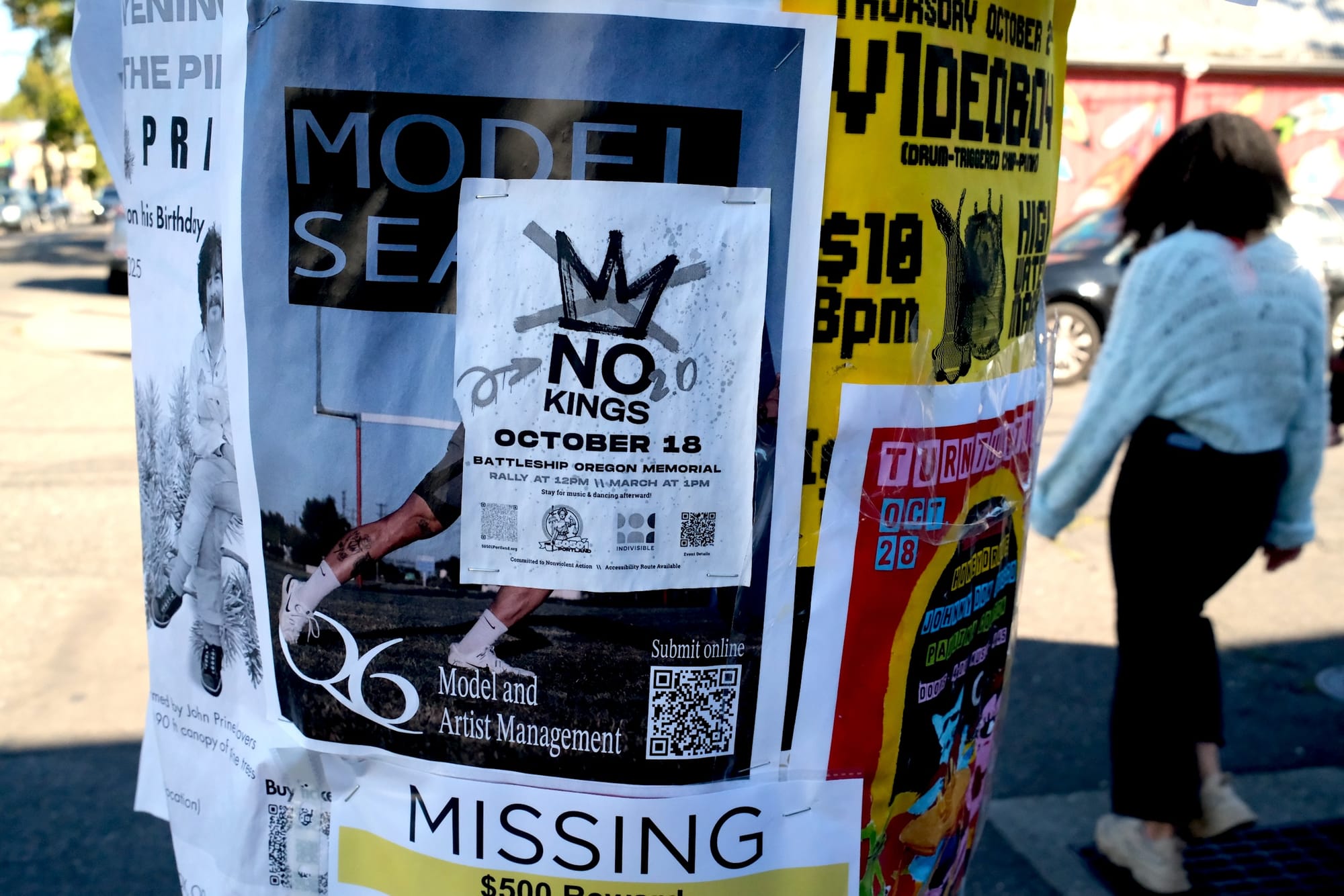
First, get that Furby out of here. Second, no kings.
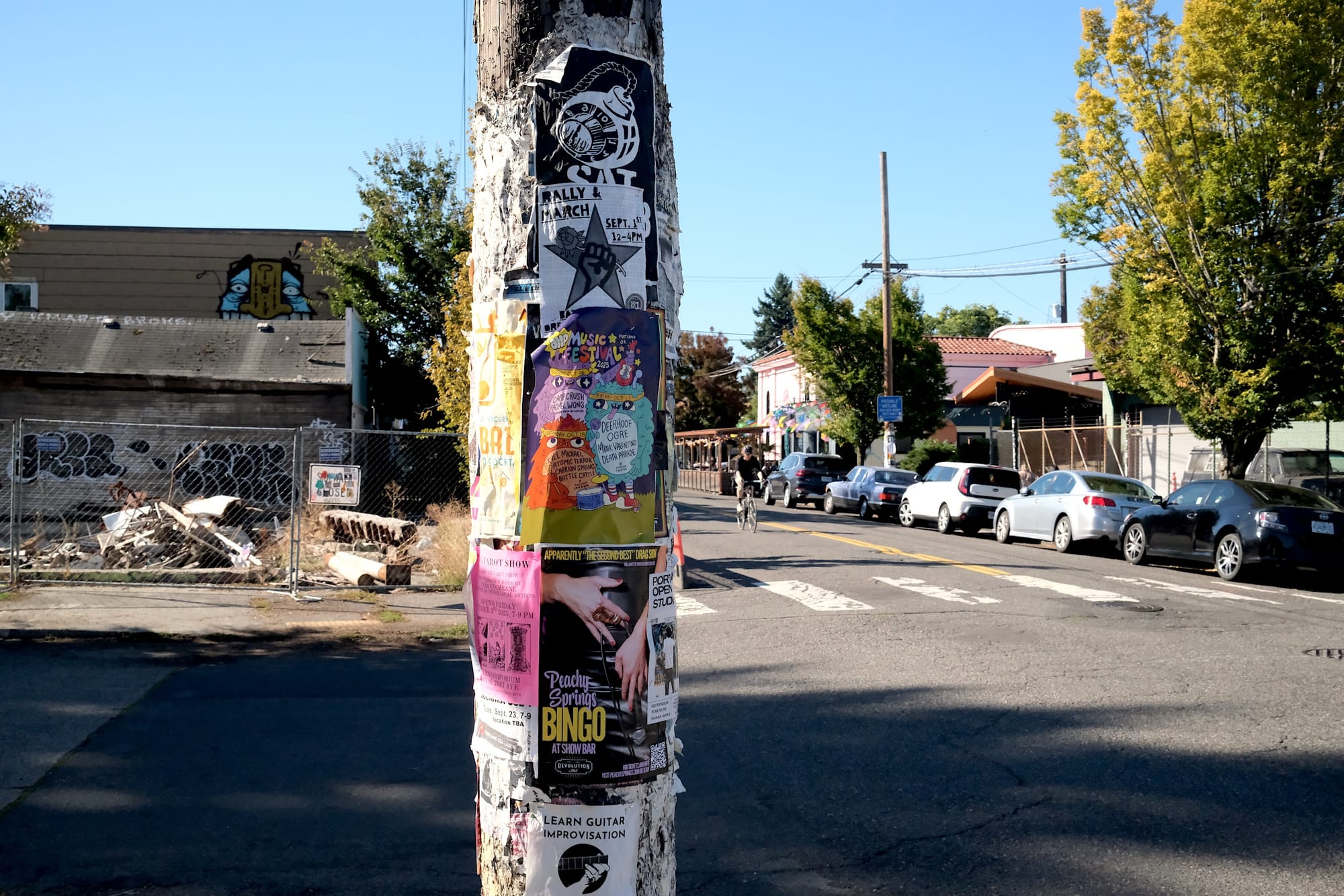
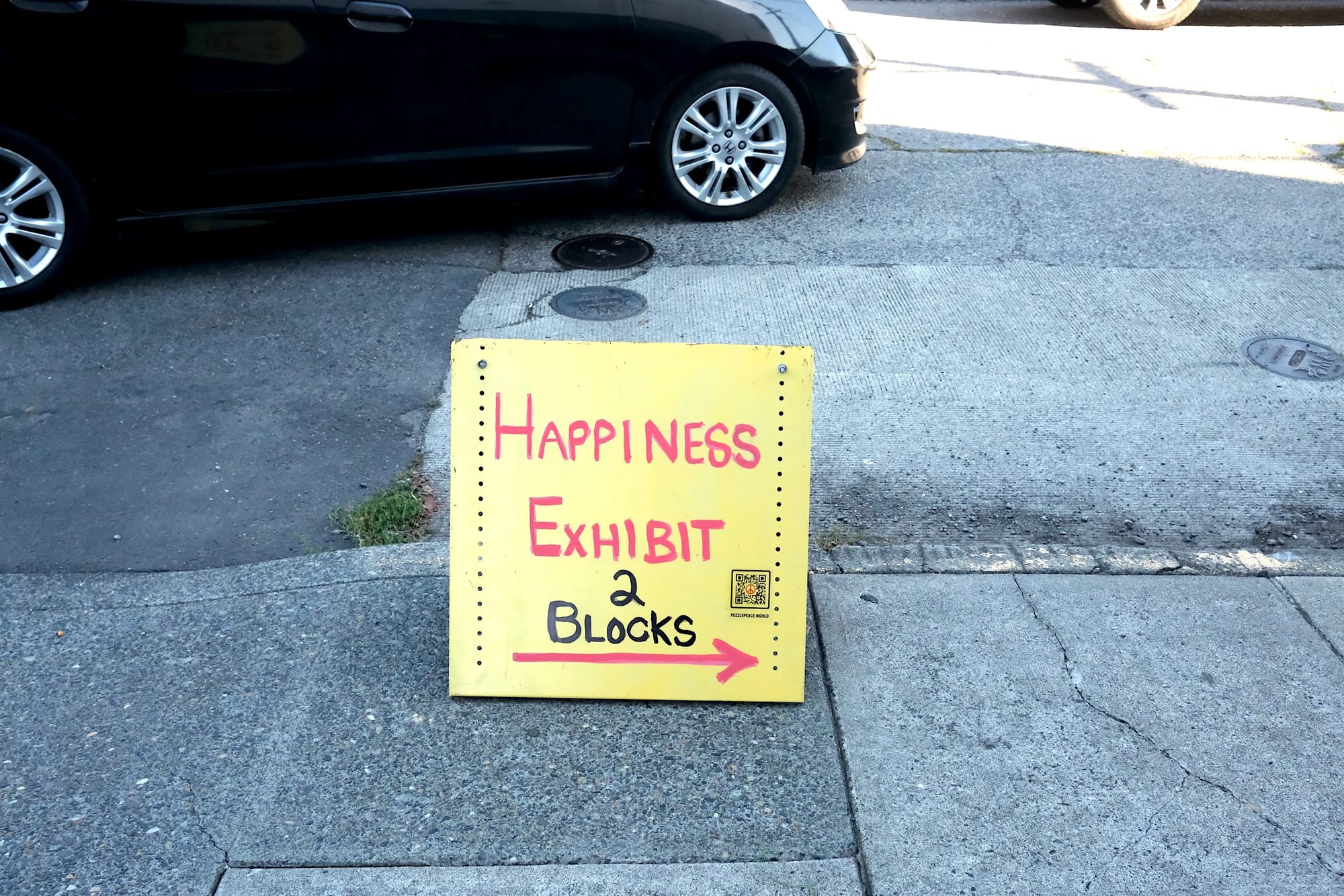
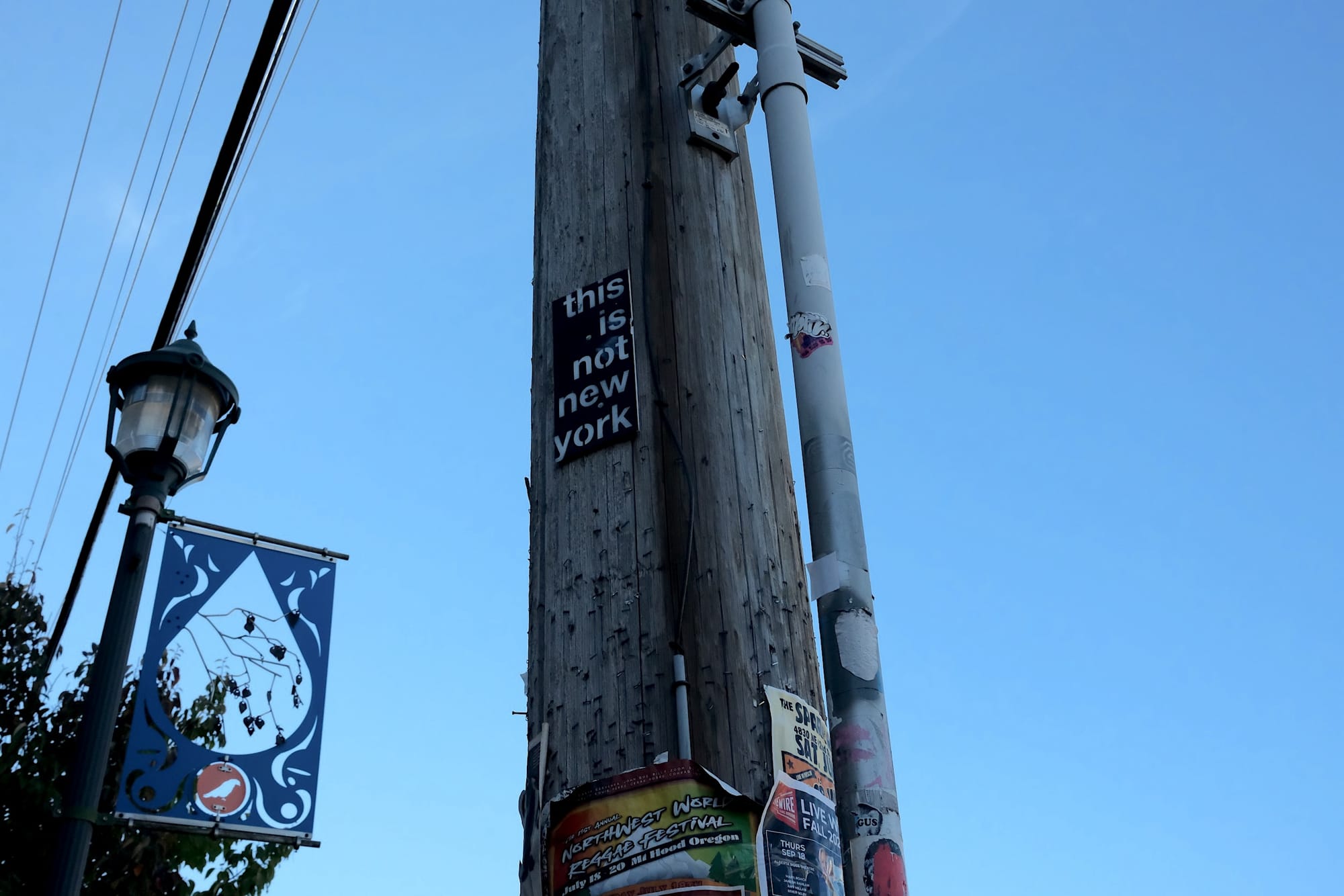
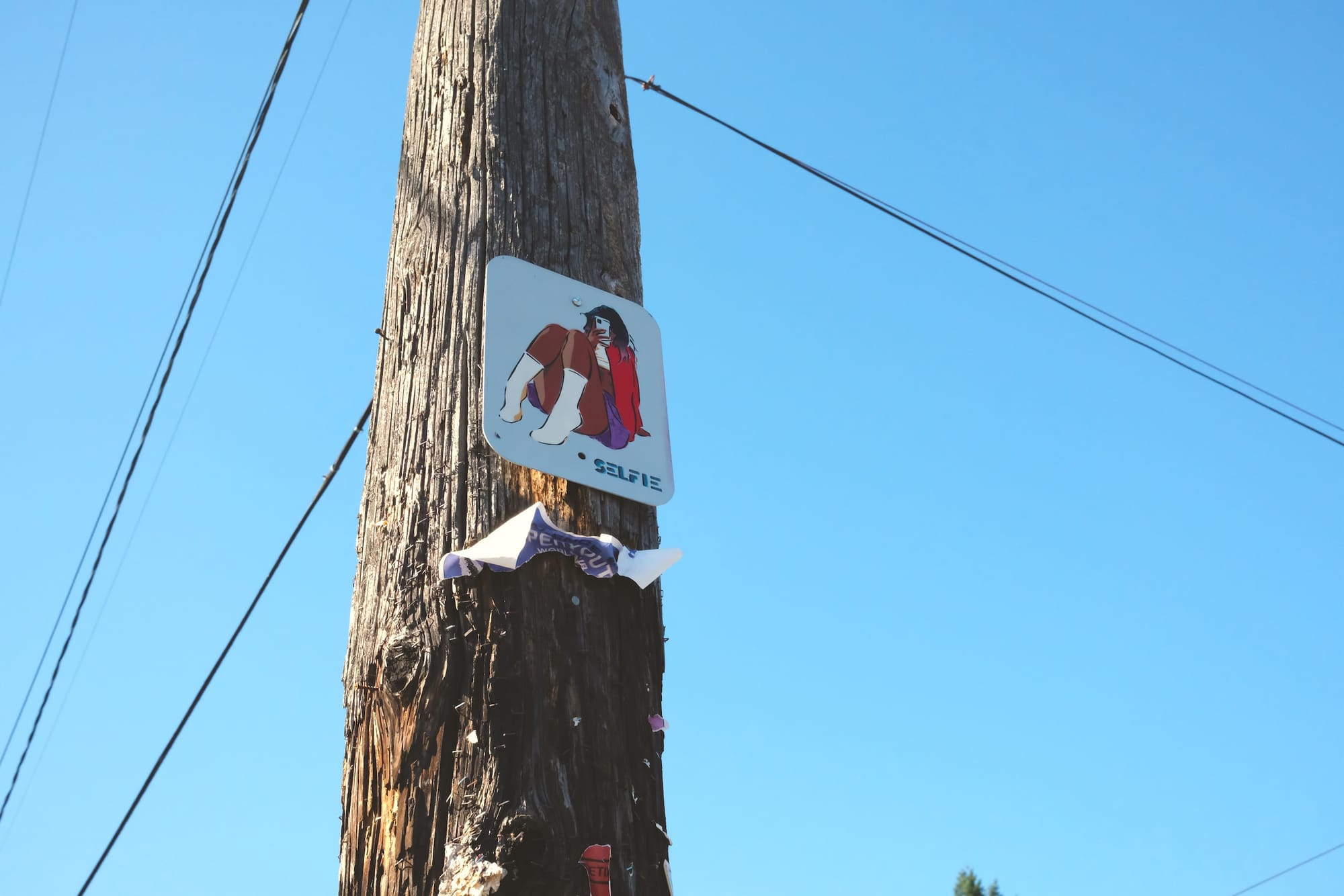
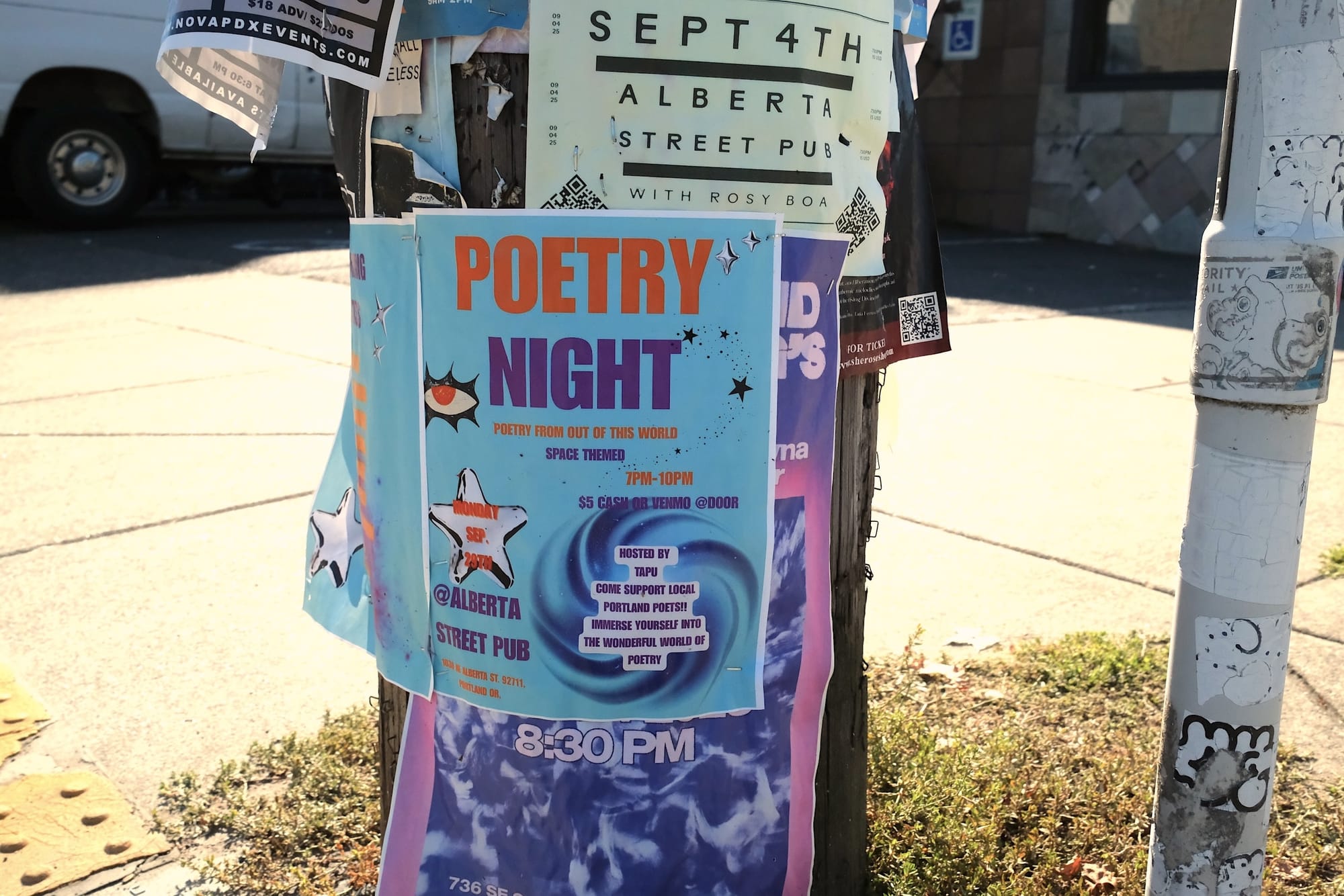
"This is not New York." No one in New York thinks that, for the record.
